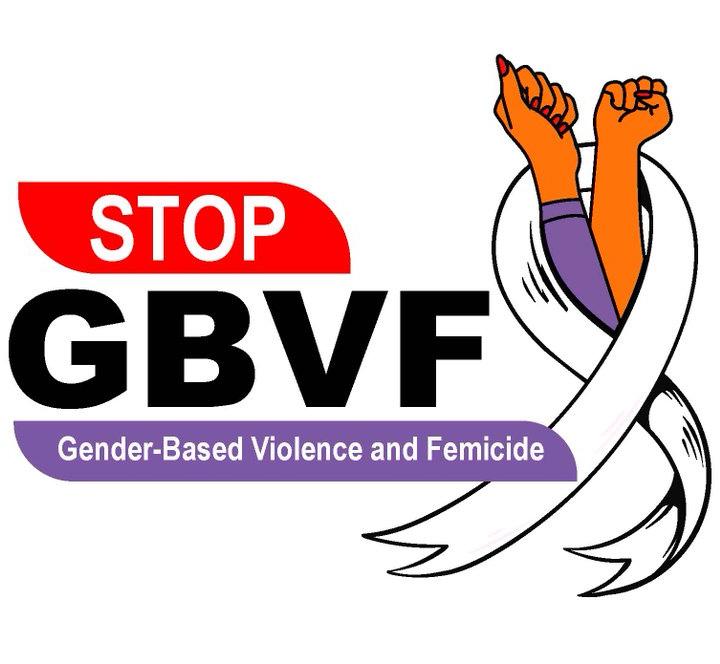Women’s Month



Celebrating 30 years of democracy towards women’s development visionary leadership taking the EC Department of Sport to greater heights




Dr Avi Sooful flying SA flag high as the first South African to join the UNESCO UNITWIN think tank on arts education

8. Conversations with leaders
Clinton Heimann explains how the Department of Land Reform and Rural Development’s drone programme is improving service delivery
12. Women in the public sector
Eastern Cape Department of Sport, Recreation, Arts and Culture HoD, Sibongile Mpofu, is an advocate for women and youth empowerment
16. Trailblazer
Biochemist Sipho Chauke is finding innovative solutions in the fight against COVID-19, TB and HIV
18. Profiles in leadership
Decolonising art in Africa drives the work of Dr Avi Sooful
22. Office of the President

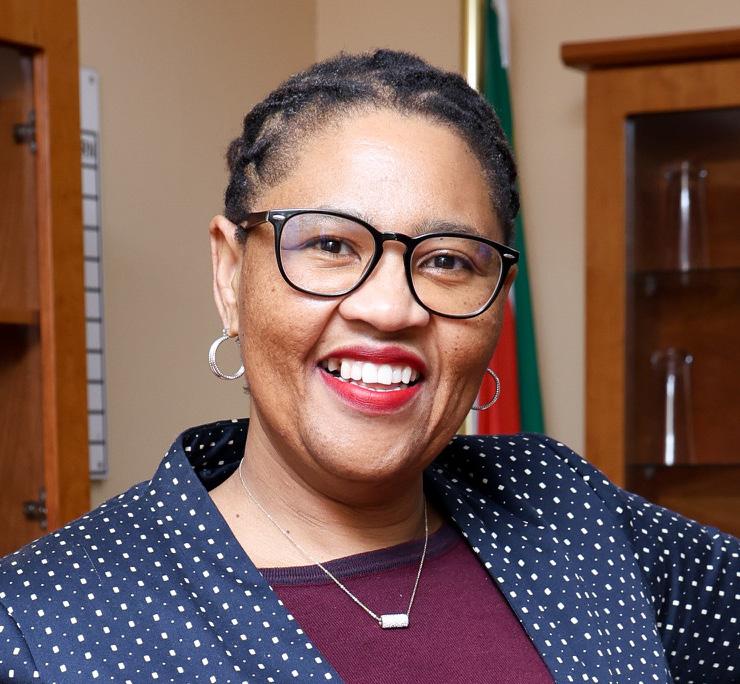
Making public funds work for all South Africans 18
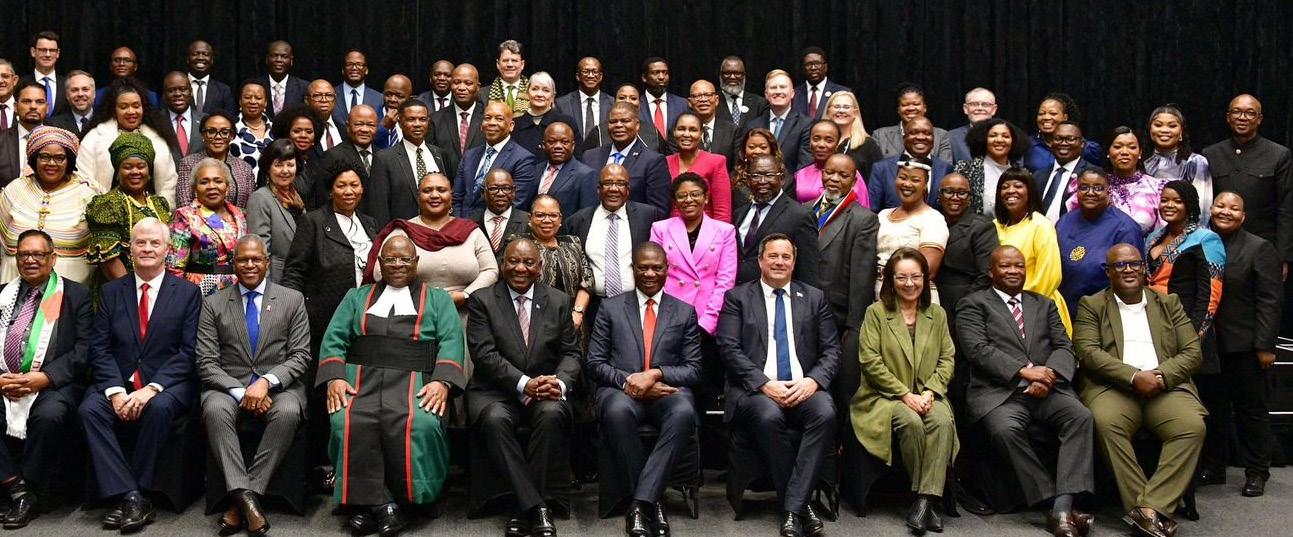

24. Saluting former Minister Naledi Pandor
Praises for Dr Pandor as she leaves the Public Service
26. Making coalitions and government of national unity work: the role of professional bureaucracies
The recent National School of Government webinar discussed the impact of the Government of National Unity (GNU) on public administration
28. Efforts to professionalise the Public Service underway
The GNU commits to building a capable, ethical and developmental state
30. A new global AI social compact needed
Artificial Intelligence poses “existential threats” without policy and regulation
34. Bridging the gender gap: the evolution of women leadership in South African governance
South Africa’s legislative and policy frameworks have advanced gender equality in the Public Service since 1994, says the DPSA’s Mataywa Busieka

Public Sector Manager THE MAGAZINE FOR PUBLIC SECTOR DECISION-MAKERS
Publishers:
Government Communication and Information System (GCIS)
Enquiries: +27 012 473 0010
Switchboard: +27 012 473 0000
Tshedimosetso House: 1035 Francis Baard Street (corner Festival Street), Hatfield, Pretoria Private Bag X745, Pretoria, South Africa, 0001 www.gcis.gov.za
Acting Director-General Nomonde Mnukwa
Acting Deputy Director-General: Corporate Services Terry Vandayar
Deputy Director-General: Intergovernmental Coordination & Stakeholder Management Michael Currin
Deputy Director-General: Content Processing & Dissemination Regomoditswe Mavimbela
Head of Editorial and Production
Zanele Mngadi Zanelemngadi@gcis.gov.za
Managing Editor Tshepo Nkosi tshepon@gcis.gov.za
News Editor Miriam Mokoena miriam@gcis.gov.za
GCIS Photographic Unit Elmond Jiyane Ntswe Mokoena Siyabulela Duda Kopano Tlape Busisiwe Malungwane
Production Assistants Jauhara Khan Nonjabulo Ntuli
Graphic Designer Tendai Gonese
THEBE MAGUGU designs for Women’s Month
Mala-mogodu and dumpling – a combo that slaps
A day at the largest man-made lake in Hyderabad

Writer: Sindisiwe Chikunga, MP. Minister: Women, Youth and Persons with
The Preamble of the Women’s Charter states:
“We, the women of South Africa – wives and mothers, working women and housewives, African, Indian, European and Coloured –hereby declare our aim of striving for the removal of all laws, regulations, conventions and customs that discriminate against us as women and that deprive us in any way of our inherent right to the advantages, responsibilities, and opportunities that society offers to any one section of the population”.
Forty years later, the situation had hardly changed, hence, the Women's Charter for Effective Equality of 1994 emphasised in its preamble that:
“As women, citizens of South Africa, we are here to claim our rights. We want recognition and respect for the work we do in the home, in the workplace, and in the community. We claim
Our forebears understood then what we must reiterate today: women's affairs are human affairs, and the socio-economic well-being of women is directly and inextricably linked to the progress and prosperity of our society.
Decades later, when an inclusive economy and shared prosperity are held up as a yardstick to assess how far we have come as a nation, the place of women in the economy remains regrettable and far from ideal. Women from all walks of life, particularly African women, continue to be on the receiving end of unjust and unequal patterns of income and wealth distribution, with many of them structurally locked out of productive economic activity. This is the
case despite women’s disproportionately higher daily contribution to national wellbeing.
Global labour market, industrial and social policy choices have created a market society that has succeeded in facilitating an unprecedented concentration of income, wealth, power and opportunities in the hands of those already well-placed men, alongside a steady rise in chronic levels of socio-economic insecurity for those already on the margins of society, who are mostly women.
Against this backdrop, as we look back at the past three decades of the democratic dispensation and project towards the 30year milestone, there is an urgent need for

us to re-examine the question of women's empowerment with greater urgency and a firmer outlook.
The necessity of gender equality for meaningful societal progress requires a fundamental transformation of patterns of ownership and control of strategic levers of economic power. Throughout the value chains that anchor the wealth-producing resources of our land, no lever of economic power should be beyond the reach of women. Charlotte Maxeke – a social and political activist who fought for women empowerment through various ways, including fighting the pass laws by leading a group of women who burnt their passes and staged protest marches in 1913 – and her genera-
tion demand this of our generation.
We learn from their generation that to fight patriarchy is to combat how society has been, and continues to be, organised on the basis of violence and exploitation of women. Maxeke and her generation worked tirelessly to confront these social, economic and political manifestations of patriarchy, paving the way for our generation to continue battling the interrelated ways in which patriarchy breeds class, racial, spatial and gender-based oppression. With more than half of our population living in poverty, record numbers of unemployment and some of the highest rates of wealth and income inequality in the world, our democratic dispensation is indeed at a crossroads. The conditions are always worse when it comes to the plight of women.
In the words of Professor Guy Standing, “the twentieth-century income distribution system has broken down... its collapse has given rise to a growing ‘precariat’ class, consisting of millions of people facing unstable, insecure labour, a lack of occupational identity, declining and increasingly volatile real wages, loss of benefits and chronic indebtedness. Our economies have become hostage to recurring financial crises, shocks, uncertainty and lack of predictability.
We know from the work of economists such as Thomas Pickety and Joseph Stiglitz that the share of income flowing into the poorest half of the world’s people is about half what it was in 1820. Today, the share of income going to the global top 10% is now 38 times higher than the average income of the bottom 50% of the population. In all of this, women remain in
the margins and periphery.
From the burden of disease to the deplorable rates of gender-based violence and femicide (GBVF), as we come to terms with the social, economic, political and cultural afterlives of the pandemic, there is a need to continue repairing and foregrounding women at the centre of reconstruction and recovery efforts. We, therefore, need enforceable laws, policies and targets to ensure that the economic empowerment of women and by extension
“ Throughout the value chains that anchor the wealthproducing resources of our land, no lever of economic power should be beyond the reach of women”.
society, is not left to chance.
The Presidential Summit on GBVF emphasised a 40% preferential public procurement plan for women-owned businesses. We will work to ensure that this 40% is enforced. In celebration of 30 years of freedom and democracy, the Department of Women Youth and Persons with Disabilities has gone a step further by facilitating the establishment of a womenowned cooperative finance institution to ensure financial inclusion, self-reliance, and free women from emotional, economic
and physically abusive environments in line with Pillar 5 of the National Strategic Plan on GBVF.
Through direct arbitration, the department continues to advocate for the implementation of interventions to support economic empowerment, participation, access and ownership in various sectors of the economy by women. These include:
⦿ Agricultural: by facilitating access to land and market opportunities, while supporting agribusiness and building capacities for sustainable agricultural practices.
⦿ Green Economy: the department is developing skills in renewable energy by supporting Solar Mama Project green technology entrepreneurship, in partnership with India.
⦿ Leveraging on intra-African trade agreements for increased market share: the department is enhancing participation in national and international trade by promoting market access for businesses owned by women, youth and persons with disabilities, in collaboration with the Department of Trade, Industry and Competition. These interventions are geared towards mainstreaming Women’s businesses into the African Continental Free Trade Area.
Through a South African National Defence Force-led National Youth Service, we will collaborate with all of society and all of the government to nurture and incubate emerging women industrialists. We will soon be re-imagining how we can leverage strategic positioning of our department to ensure that not a single woman is left behind. ❖
August is Women’s Month in South Africa, with 9 August celebrated annually as Women’s Day. This is a tribute to the more than 20 000 women, who marched to the Union Buildings on 9 August 1956, protesting the extension of pass laws to women.
As we commemorate the great job done by the women of 1956, we are reminded of the many battles and challenges that women in South Africa continue to face. These include gender disparities and gender-based violence and femicide (GBVF), among others. So bad is the GBVF scourge that President Cyril Ramaphosa termed it a pandemic. The sad part about the scourge is that many women are abused by intimate partners. Just a few weeks ago, a young academic and scientist, Dorcas ‘Didi’ Lekganayne, was mur-
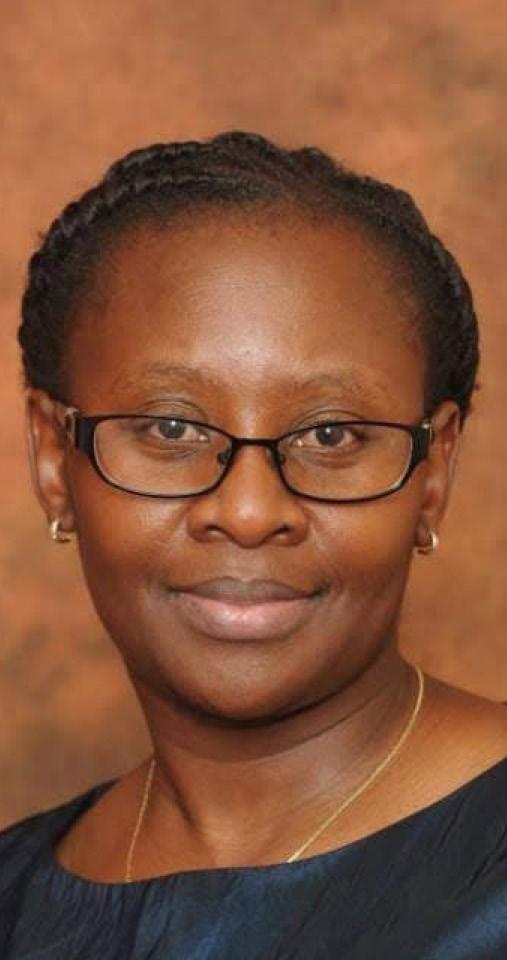
dered, allegedly by her partner in their house. The 32-year-old was among the Mail & Guardian’s 200 Young South Africans 2024 in the Climate Change and Environment category. This is one of the many cases reported daily in South Africa.
The World Health Organization (WHO) describes violence against women —especially intimate partner violence and sexual violence — as a major public health issue and a violation of women's human rights. The WHO statistics estimate that globally, about one in three (30%) of women have experienced physical and/or sexual intimate partner violence or non-partner sexual violence in their lifetime. Among women aged 15 – 49 who have been in a relationship, nearly one third (27%) report experiencing some form of physical and/or sexual violence by their intimate partner.
Disturbingly, the WHO data also shows that as many as 38% of all murders of women are committed by intimate partners. Globally, 6% of women report being sexually assaulted by
someone other than a partner, although data on non-partner sexual violence are more limited. Most of this violence is perpetrated by men against women. Government remains committed to fighting the GBVF scourge and has continuously stated that the fight against such crimes remains a priority.
According to the 2023/24 third quarter (1 October 2023 to 31 December 2023), there was a 1.7% decline in sexual offences crime, including rape and sexual assault. Provinces such as Gauteng, Eastern Cape, KwaZuluNatal, Limpopo, Northern Cape, and Western Cape saw declines in rape cases. More than 2 400 suspect raids led to the arrest of 4 264 individuals for GBVFrelated crimes.
A total of 112 life sentences were handed down to 89 rapists, while 64 rapists and GBVF
perpetrators were each sentenced to 20 years and above imprisonment.
A total of 172 rapists and GBVF perpetrators were sentenced 10 to 19 years imprisonment, and 1 to 9 years imprisonment were handed down to 261 rapists and GBVF perpetrators.
In May 2024, President Ramaphosa signed into law the National Council on GBVF Bill. The council will coordinate and provide strategic leadership to the fight against GBVF, and be multi-sectoral, drawing on the expertise of all stakeholders, including civil society, labour and business.
The establishment of the coun cil was one of the resolutions of the first Presidential Summit on GBVF in 2018. Since then, many other achievements have been made in fighting the scourge, including the development of the National Strategic Plan on GBV, and the founding of the Women's Economic Assembly, which aims to integrate womenowned enterprises into industry value chains, promote sustaina ble economic development, and empower women economically, among other things.
In 2022, President Ramaphosa
enacted three laws aimed at strengthening efforts to end GBVF: the Criminal Law (Sexual Offences and Related Matters) Amendment Act, the Criminal and Related Matters Amendment Act, and the Domestic Violence Amendment Act.
Delivering the Ministry of Police Budget Vote in July 2024, newly appointed Police Minister Senzo Mchunu reiterated his department’s commitment to reduce cases of violent crime, including GBVF. He also announced that the detection rate for contact crimes against
women is expected to improve to over 71%.
In his Opening of Parliament Address on 18 July 2024, President Ramaphosa assured the nation that the Seventh Administration will continue the fight against GBVF.
“We will continue to implement the National Strategic Plan on Gender-Based Violence and Femicide, and expand victim support services, like the Thuthuzela Centres and GBV desks in police stations,” stated the President.
As public servants, let us do
all in our power to implement government policies to end the GBVF scourge, and as President Ramaphosa stated; “...our greatest task is to prevent genderbased violence from being perpetrated in the first place... we want to end, once and for all, the violence that men perpetrate against women”.
Our collective actions today will pave the way for a future where equality, safety and justice are not just aspirations but the lived reality for every woman and girl in our nation. ❖
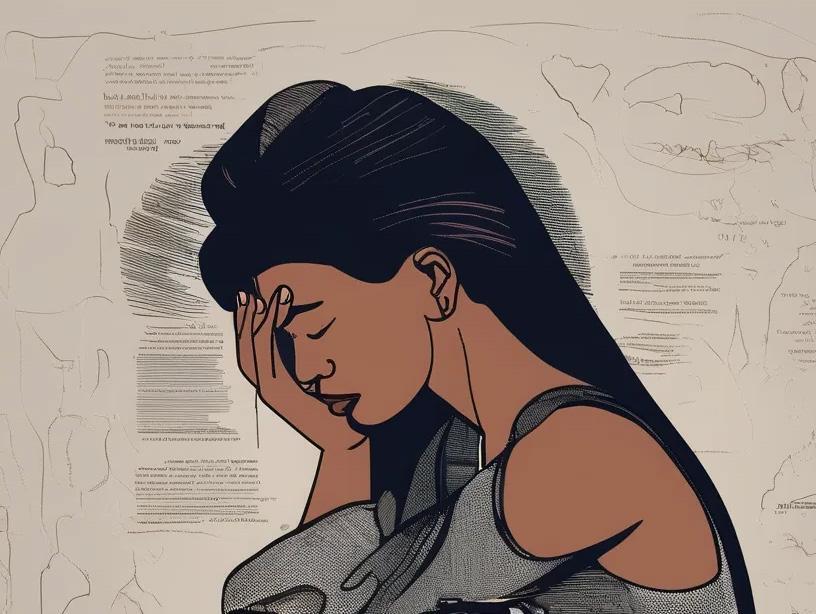
Before the then Department of Agriculture Land Reform and Rural Development was split into two by President Cyril Ramaphosa when he announced the new Cabinet, the department launched a drone programme to improve service delivery in South Africa. The programme was launched

in April 2024 by the department’s former Minister Thoko Didiza, who is now the Speaker of the National Assembly.
Public Sector Manager magazine spoke to the Deputy Director-General (DDG) for Spatial Planning and Land Use Management at the new Department of Land Reform
and Rural Development, Clinton Heimann, about how the programme is benefitting the country.
“We came up with this programme because we want to use technology more efficiently and quickly, especially in rural spaces. This is because it takes a very long time to still do certain
things the traditional way, such as sending a land surveyor to peg each stand in the community,” Heimann explained.
About two years before the launch, the then Minister Didiza and Heimann visited a farm in the Western Cape and saw drones being used to waterspray flowers, targeting problem
areas in the farm. She then asked him to consider the programme for the department.
The department ultimately established a team that provided it with a business case.
Heimann emphasised the importance of following the right procedures when implementing the programme, including getting qualified pilots to fly the drones, getting the Unmanned Aircraft Systems Operating Certificate, and registering unmanned aerial vehicle, which is basically a drone.
“We trained 22 pilots to fly different types of drones, but two of them have left the department, and we are currently training 30 more pilots. The pilots are
employees who already work for the department and have just adjusted their performance agreements to accommodate the drone programme,” he explained.
Heimann is among the qualified pilots whose certificate allows them to fly as far as 700 hectares in 90 minutes.
According to Heimann, the programme is benefitting various government departments and its stakeholders, and is being used for various projects in and outside the department.
The drones are also used for land use planning in traditional areas and for urban planning be -

cause they exceptionally provide aerial surveillance.
The department also uses drones that have multispectral cameras to capture images in different bands of the light spectrum, beyond what human eyes can see in the agricultural space. This helps to identify and address problem areas in farms.
The drones are also used for elevation. In cases where, traditionally, it would take a land surveyor about two weeks to do contour lines, the drones get the same job done within 30 minutes. Contours on the field refer to lines on maps that connect points of equal elevation.
For buildings, he said the drones will be used to build
digital twins, which are efficient to building scenarios for spatial planning. He noted that there is a notion that countries need to consider building digital twins, adding that “most international countries are using this method for better planning, including plans that are geographically correct and measurable on the digital images”.
Furthermore, drones are used for restitution, as there are many restitution farms in the country. Although satellite imagery can be used for the same purpose, its resolution is not good enough for one to see problem areas.
Within its Spatial Planning and Land Use Management Unit, the department has a huge geo -
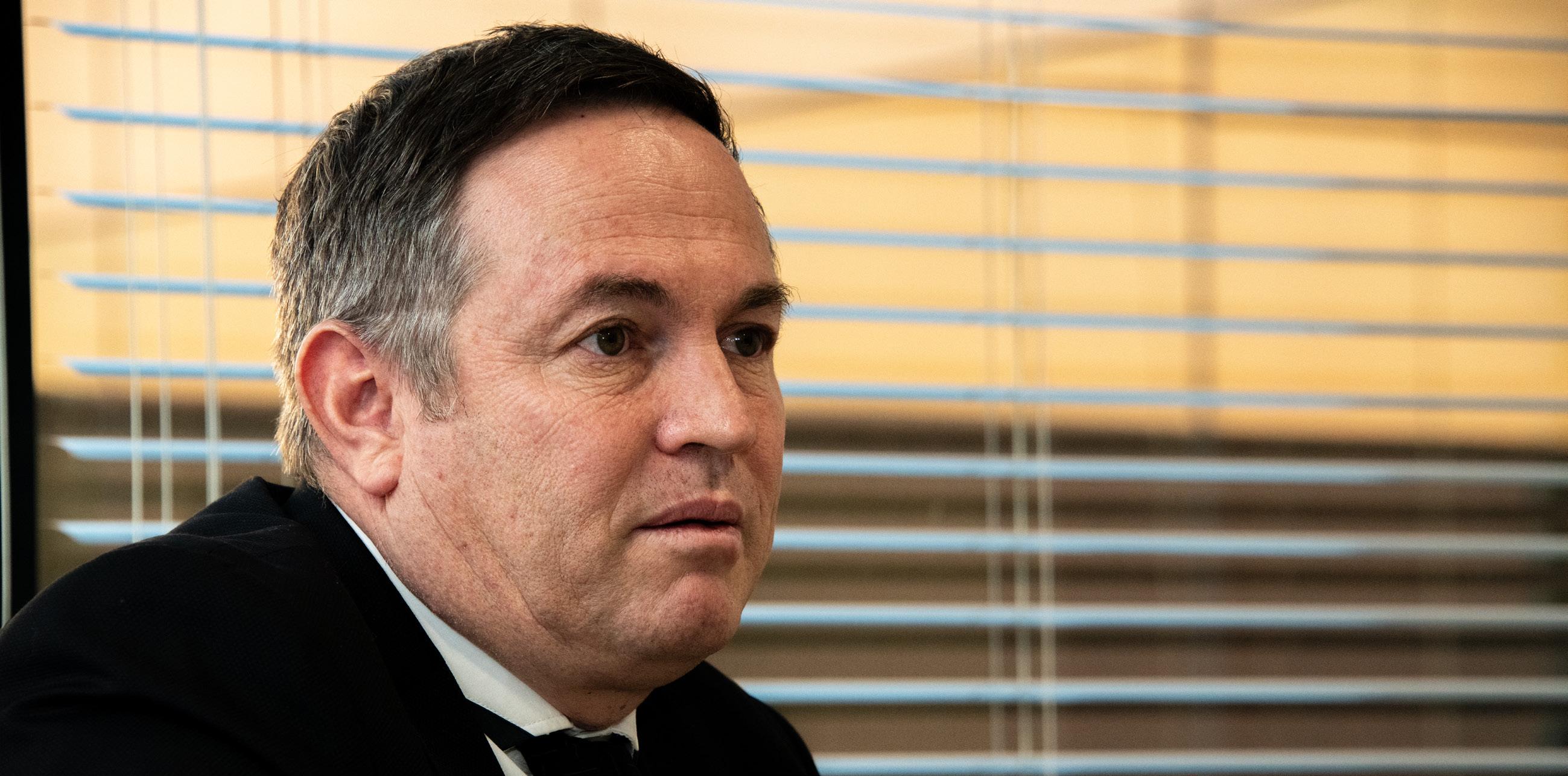

graphic management component, which is set to benefit by taking the data produced by the drones and put it onto a map.
“This will help officials to plan better for restitution, rural development, land surveying, town and regional planning, and to mitigate risks associated with climate and the environment,” he explained.
The department has drones in every provincial office under the Spatial Planning and Land Use Management Unit.
“We have a footprint of pilots around the country who are assisting the department with this project, including getting aerial image of the land,” he said.
Heimann added that the department currently only has a tip of the icebag of what it can do with the drone technology because it is still new.
Soon after the launch, the department started to get calls from its various stakeholders, asking for services of the drone programme.
“We already have a memorandum of understanding with the Housing Development Agency (HDA) because it needs the drone services to better understand the situation of informal settlements in the country, among other things.
“Additionally, we conducted drone surveys of the KwaZuluNatal tornado site, providing crucial information to the HDA, the Department of Human Settlements (DHS), the Department of Cooperative Governance and Traditional Affairs (CoGTA), and eThekwini Metro for situational assessment and disaster response,” explained Heimann.
The drone programme recently supported the disaster relief efforts in Nelson Mandela Bay Metro by flying over 17 informal settlements in a single day to determine water damage to property.
“The information was used by
the HDA, DHS, Nelson Mandela Bay Metro and COGTA,” he added.
The Government Communication and Information System has also benefitted from the programme during preparations of the Presidential Inauguration.
While flying on the day was not allowed, the drones took preevent images.
“We did not fly on the day of the inauguration because various Heads of State were present and flying around was not allowed.
The drone programme was limited to a certain extent due to the security requirements stipulated by event organisers,” he said. ❖

Head of Department (HoD) for the Eastern Cape Department of Sport, Recreation, Arts and Culture (DSRAC), Sibongile Mpofu, is the epitome of leading from the front. Her staunch advocacy for the empowerment of women and youth, clean governance and the implementation of automated systems and processes to drive efficiency in the department is what truly sets her apart as a leader. As the first woman to hold the position, her tenure marks a significant milestone in the department's history.
Known for her staunch advocacy for women and youth development, Mpofu is

the embodiment of values and principles rooted in honesty, ethical behaviour, fairness and justice in the representation and advancement of women in leadership. True to this ideal, the department has seen a rise in women assuming leadership roles – occupying 56% of senior management positions.
Mpofu says her leadership style revolves around vision, creativity and innovation. Her foresight and strategic thinking have been instrumental in charting the course for DSRAC. She spearheaded the annual HOD’s 8 Principles Plan of Action Session, a programme dedicated to advancing gender equality and women empowerment, to capacitate women in senior management in their leadership roles and equip them to support
women in junior management towards career advancement.
“I believe women are better leaders if they are given the necessary support and space to excel. Women are better leaders because they are nurturers, they are compassionate and are often the underdogs by virtue of the unfair systems in our society. These systems propel women to want to rise to be leaders and by the time they get there, they would have been confronted by various obstacles, unfairness and the double standards of patriarchy.
“I think it is this context that makes us better leaders. The empowerment of women, though, should be genuine and not be done to score points, but rather done properly by ensuring the removal of all the barriers that
make it difficult for women to excel,” said Mpofu.
In supporting local economic development, the department has surpassed its target of 60% allocation of its goods and services budget spend on local suppliers, with women suppliers benefitting the most at more than 75%.
During Mpofu’s tenure, the department, in partnership with the National Youth Development Agency, has recruited 30 young people, 18 of which were women, to participate in the Youth Creatives Programme for 2023/24.
The department’s partnership with sector education and training authorities and the private sector continues to ensure that
young people in the Eastern Cape are afforded opportunities within the various youth development programmes.
“Youth empowerment is important to me because the youth of today are the leaders of tomorrow. I believe that the sport and creative sectors can be a key catalyst for youth capacitation and a vehicle for socio-economic transformation,” added Mpofu.
“We have managed to create 196 Expanded Public Works Programme work opportunities, placed 149 unemployed youth on internships and work integrated programmes both for technical vocational education and training students and university graduates. We have further afforded 31 young people from the province with learnership opportunities. Through the

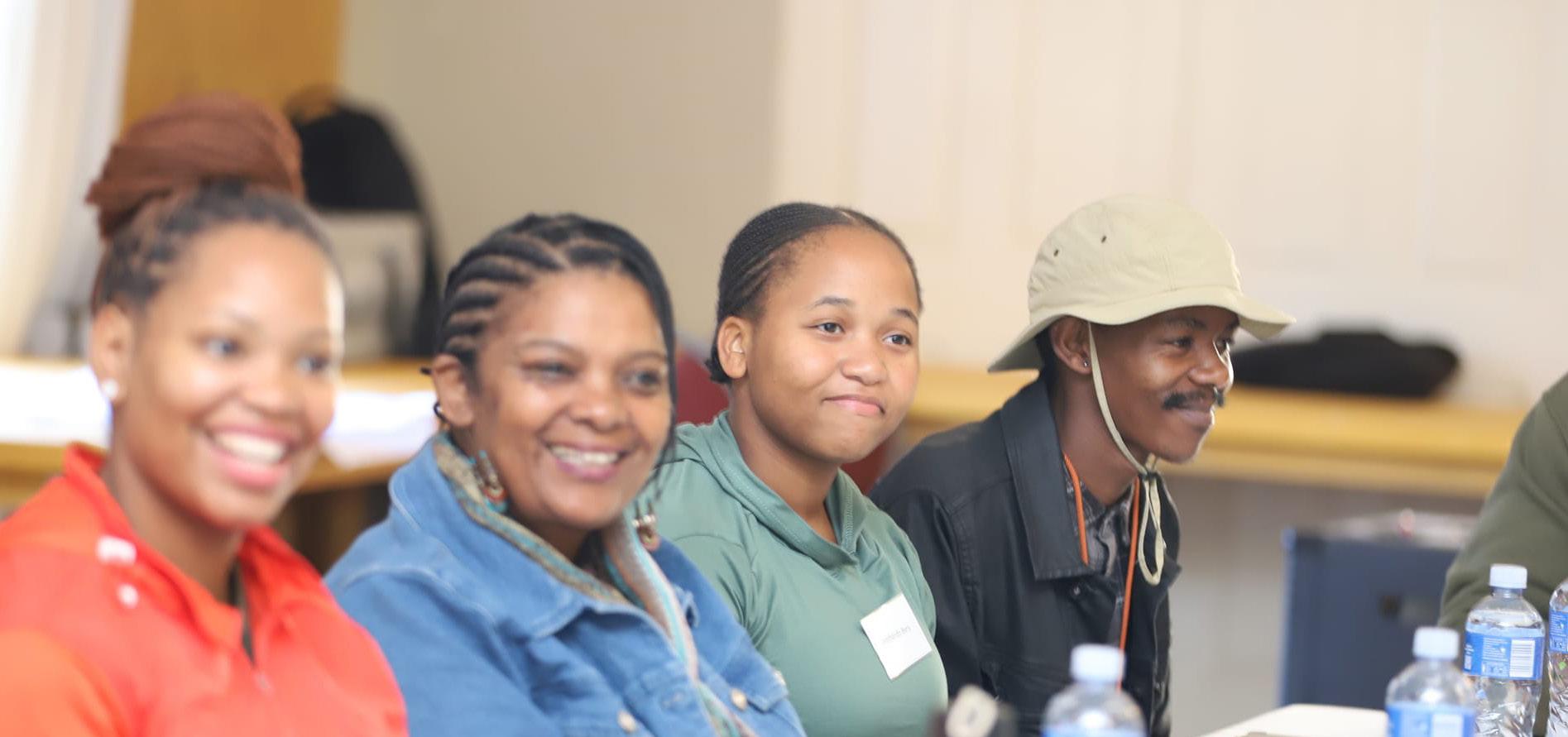

Young Creative Programme and the Artists in School Programme, the department has recruited 60 young people who have been placed within community art centres as well as schools in the province,” she explained.
Having joined the department in 2019, Mpofu has made considerable strides in realising the department’s primary
mandate through its institutional programmes. Her structured and process-driven approach ensures that decisions are made within a clear framework, fostering informed and equitable outcomes. With administration being a strong suit under her management, her commitment to transparency and accountability is reflected in the department’s clean audit record, maintained for three consecutive years. This
accomplishment underscores her dedication to ethical governance and effective management.
“Good governance is essential to ensuring reliable and efficient service delivery, that is why it continues to be one of our key priorities as a department, both in a bid to dispel public distrust on government and also to encourage public sector transparency and accountability,” Mpofu expressed.
Mpofu’s impressive academic credentials include a Master’s Degree in Development Studies from Nelson Mandela University and a Bachelor of Social Science in Public Administration from the University of Cape Town. With over 15 years of experience in policy development and management, strategy development, research, and the development of performance and business plans, her expertise spans financial and
human resource management and monitoring, evaluation and reporting. Her specialisation in land and poverty, gender and governance issues has seen her contribute significantly to both government and various nongovernmental organisations.
The DSRAC’s vision is to be a beacon of cultural, heritage, artistic, and sporting excellence, which is testament to the athletes, artists and cultural practitioners who have represented the province on national and international platforms. Influenced by the overarching vision, Mpofu has one of her own, “the province boasts rich talent in the sport, arts and cultural sectors, however, the aim now is to develop a self-sufficient sector that will assist local talent to thrive.”
In the wake of the Eastern Cape Seventh Administration yielding a new MEC for Sport, Recreation, Arts and Culture, the envisaged result is one that sustains and contributes to the progress that has been made. The strides and accomplishments that have been achieved by the department are reflective of the management guiding the concerted efforts of the workforce that drive services delivery to communities. Mpofu’s journey is a testament to the transformative power of visionary leadership in the public sector. ❖



Sipho Chauke, a Biochemistry postdoctoral candidate and work student at the Council for Scientific and Industrial Research (CSIR) manufacturing cluster, wants to use innovation to impact people’s lives.
If recent developments are anything to go by, the 29-yearold is well on her way to achieve this.
“I am still trying to figure out my career path, however, one thing I can say confidently is that I know I want to make a difference in people’s lives through science in innovative ways. I also would love to gain more skills to the point where I am an expert in my field,” she told Public Sector Manager (PSM) magazine in a recent interview.
In 2016, Chauke obtained her undergraduate degree in

Biochemistry from the University of Pretoria. She went on to complete her honours and master’s degrees in Medicinal Plant Science in 2017 and 2019, respectively, at the same institution. Chauke says her career in biochemistry was inspired by her curiosity on issues affecting humanity. “I was intrigued by the many ways science plays a role in our lives, especially about how diseases infect people, the source and their causes what triggers them to become a threat to humanity, and how they can be treated. The more answers I found, the more interesting I found biological science to be”.
In March 2024, the Johannesburg born-and-raised scientist was presented with the Best PhD Poster Presentation

award for her work, titled Biosensing multidrug-resistant TB Genes using Surface Plasmon Resonance (SPR) at the Society of Photo-Optical Instrumentation Engineers International Conference in the United States of America.
The paper was about the detection of drug-resistant TB genes using SPR, an opticalbased setup. It looked at “how we can work towards creating alternative biosensing tools that can help us detect drug-resistant genes, as a way of working towards being able to diagnose drug-resistant TB using the same setup”.
Chauke recalls feelings of shock and disbelief when her name was called.
“I could not believe they had called my name for that prize. The recognition somehow justified that the work that I am do -
ing, with the help of my supervi sors and members of the Biophotonics group at the CSIR, is interesting not only to myself but to other scientists as well,” she said.
In addition, she said, the recognition helped her realise that research done in South Africa not only benefits and im pacts locals “but that it also has an impact on a global scale and is internationally innovative”.
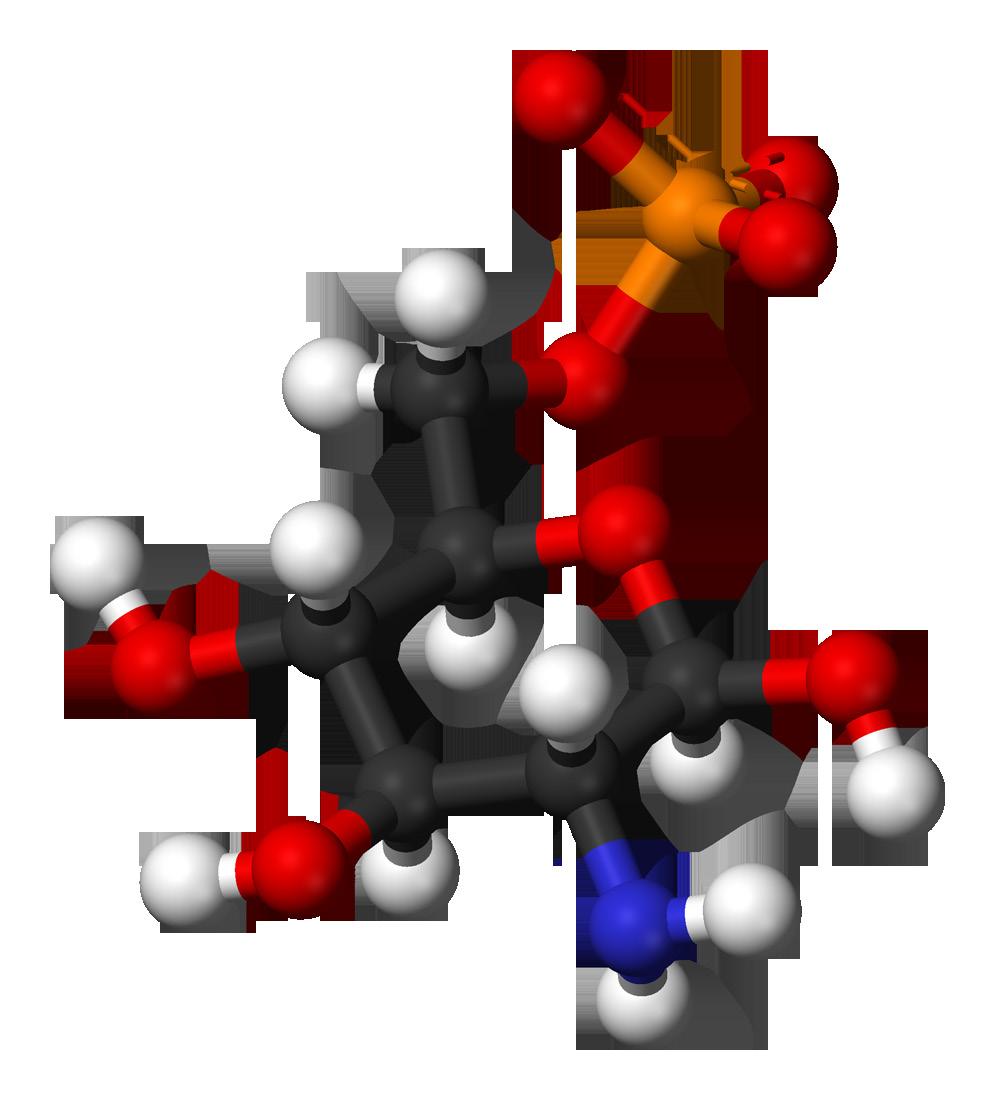
and overall carrying out experiments that contribute to the scientific research community. I enjoy this about my work because there is a constant thrill of discovering something that I did not know before and just an expansion of the knowledge I already have, and that is exciting for me,” she explained.
She said her upbringing afforded her opportunities to get a good education through bursaries and scholarships that helped her finish school and pursue a career in science.
She joined the CSIR in 2020 –just as the COVID-19 pandemic was starting – as a laboratory technician for a Microarray research group that worked mainly on Sars-cov-2 (the pathogen
that causes COVID-19), TB and HIV.
Currently, her role and responsibilities include research, conducting experiments, generating data, and reporting on the findings relating to a project that focuses on drug-resistant TB and Biophotonics techniques.
“I enjoy figuring things out in the laboratory, learning new techniques, pinpointing what could go wrong and how to fix it
The CSIR has wide-range of work placement opportunities for young researchers looking to launch their careers, including bursaries to studentships, internships, annual induction, vacation work and wrap-around support. The CSIR also partners with the Department of Science and Innovation for the Inter-programme Bursary Scheme, which is restricted to qualifications that are aligned with the department’s national priority research and development themes. ❖
Fine arts Senior Lecturer at the University of Pretoria (UP), Dr Avi Sooful, is flying the country’s flag high as the first South African to join the United Nations Educational, Scientific and Cultural Organization (UNESCO) University Twinning and Networking Programme (UNITWIN) think tank on arts education around cultural diversity and sustainable development.
UNESCO UNITWIN was established in 1992 to advance research, training and programme development in all of UNESCO’s fields of competence by building university networks and encouraging inter-university cooperation. It brings together education scholars from a variety of universities and institutions worldwide. There are currently
45 UNITWIN networks in 120 countries.
Earlier this year, Sooful was accepted as an associate member of the UNESCO UNITWIN Arts Education Research for Cultural Diversity and Sustainable Development think tank for a period of five years.
“I see this as another opportunity for me to participate in engagements with colleagues

in other African and European countries to expands our horizon in terms of how we could manifest projects together,” said Sooful.
Her involvement in the arts, especially in the Exploring Visual Cultures (EVC) project – an open and transnational network of scholars, artists and teachers from the fields of art education, art, visual cultures studies or
cultural anthropology – takes Sooful to international boardrooms to work on art projects.
The EVC has members from universities, museums and nongovernmental organisations in Ghana, Cameroon, Kenya, South Africa, Greece and Germany.
exchanging best practices among ourselves on how to best educate our countries about art,” she said.
For the past three years, the project focused on understanding how differently Germans and Africans think and understand art education, and realising the importance of discussing colonialisation and decolonisation.
Another major UNESCO UNITWIN project that Sooful
“My interest for my master’s studies, and still remains, was the reasons for lack of black women artists in the country and their narratives, history and experiences not being profiled”
Sooful is also part of a project that is developing an educational textbook for 14-yearold learners in Germany and Ghana. It will be a trans-cultural textbook that is inclusive of art, geography and history.
The project has been in the pipeline for about three years, and Sooful’s role is to mediate meetings between South Africa, Germany and Ghana to understand different ways of thinking, how best to find ways in which art, geography and history can be incorporated in art education using visual and text content to come up with the same textbook that will be written in German and English.
“This is about decolonising education. We are also
is helping UNESCO achieve its educational goals through her involvement in two significant committees – the South African National Involvement Association for the Visual Arts (SANAVA), where she serves as national vice president and previously served as president for two terms, and the EVC, where she is chairperson.
SANAVA is a national organisation that also works in partnership with ABSA in the ABSA L'Atelier art competition, a leading Pan-African art competition that was established more than 35 years ago.
The competition looks at the career of artists. Apart from being opened up to 12 countries, and South Africa being one of them, it has the Gerard Sekoto
Award, which is specifically awarded to South African artists. Sooful said this is an important footprint on how South African artists engage with the continent, because they should not see themselves in isolation.
“My involvement in these networks allows for a broader interrogation of art education, specifically with regard to Africa and our relationship with the world,” Sooful said.
With more than 30 years’ work experience as an art teacher, Sooful started her career as a high school teacher for art in Umlazi in KwaZulu-Natal.
She was later appointed senior lecturer for fine arts at the Vaal University of Technology for 15
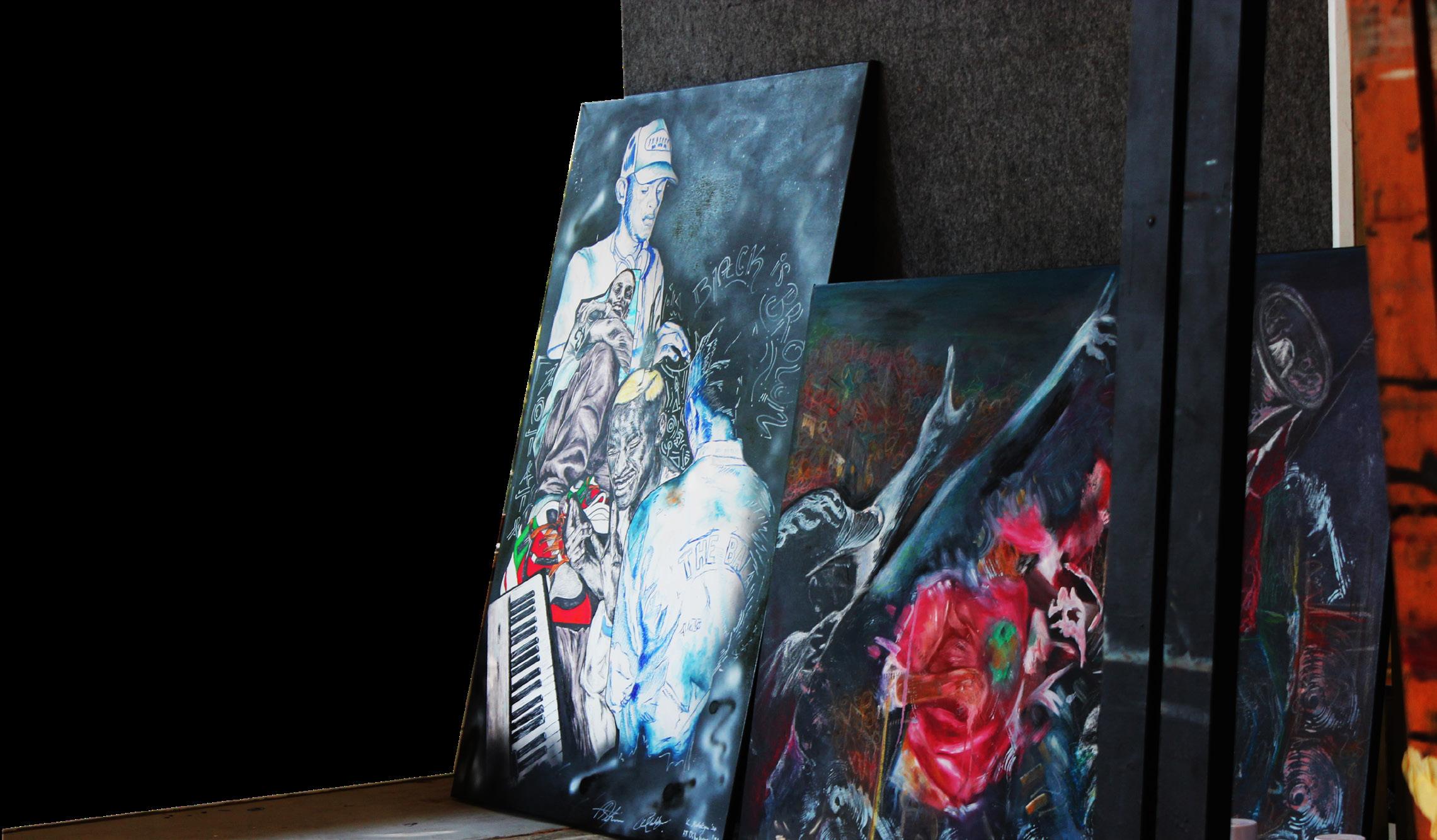
years and became the head of Arts and Design at the institution.
“My interest for my master’s studies, and it still remains, was the reasons for the lack of black women artists in the country and their narratives, history and experiences not being profiled. About 30 years later when I enrolled for a PhD in Fine Arts at the Vaal University of Technology, I concentrated on the same topic, looking at conferences and exhibitions that took place between 1982 and 1991, mainly outside South African borders,” she explained.

She believes it is important to write up these narratives in ways that exist but have not yet been written up.
Sooful joined the UP in 2015 in her current position and has been pushing the envelope of the South African artistry that has not been written since then.
She defines fine arts or any creative qualification as one that allows the unlocking of imagination and creativity. It is more than just making pretty pictures. It allows one to understand what society is about and what it requires so that artists can give back to society.
The qualification offers its graduates a skill to be entrepreneurial because they do not have to desperately look for jobs but can rely on their creativity to determine what they want to offer society.
Besides her colourful career, Sooful enjoys investing in people’s lives, making a difference in student lives and exploring their minds.
Sooful believes the art sector has evolved to allow Black, Coloured and Indian persons into institutions that promote careers such as curatorship and opportunities to travel internationally over the last 30 years.
“Our young democracy has made it possible for art to be realised in spaces that were not allowed before. We have a long way to go in terms of appreciating where we are, and it is very important for us to grow because we are not vocally subservient,” she said.
At the end of her term at the UNESCO UNITWIN, she is hoping to have contributed to making Europeans understand the tragedy that they have left behind in African countries through colonisation, and that the decolonisation programme would be fully embraced.
“I want to put South Africa and Africa on the map in terms of who we are as people, as makers of art objects that are part of our identity and that are part of cultural matters that define us,” she said.
All she wants, in the end, is to give back to communities what they deserve. ❖

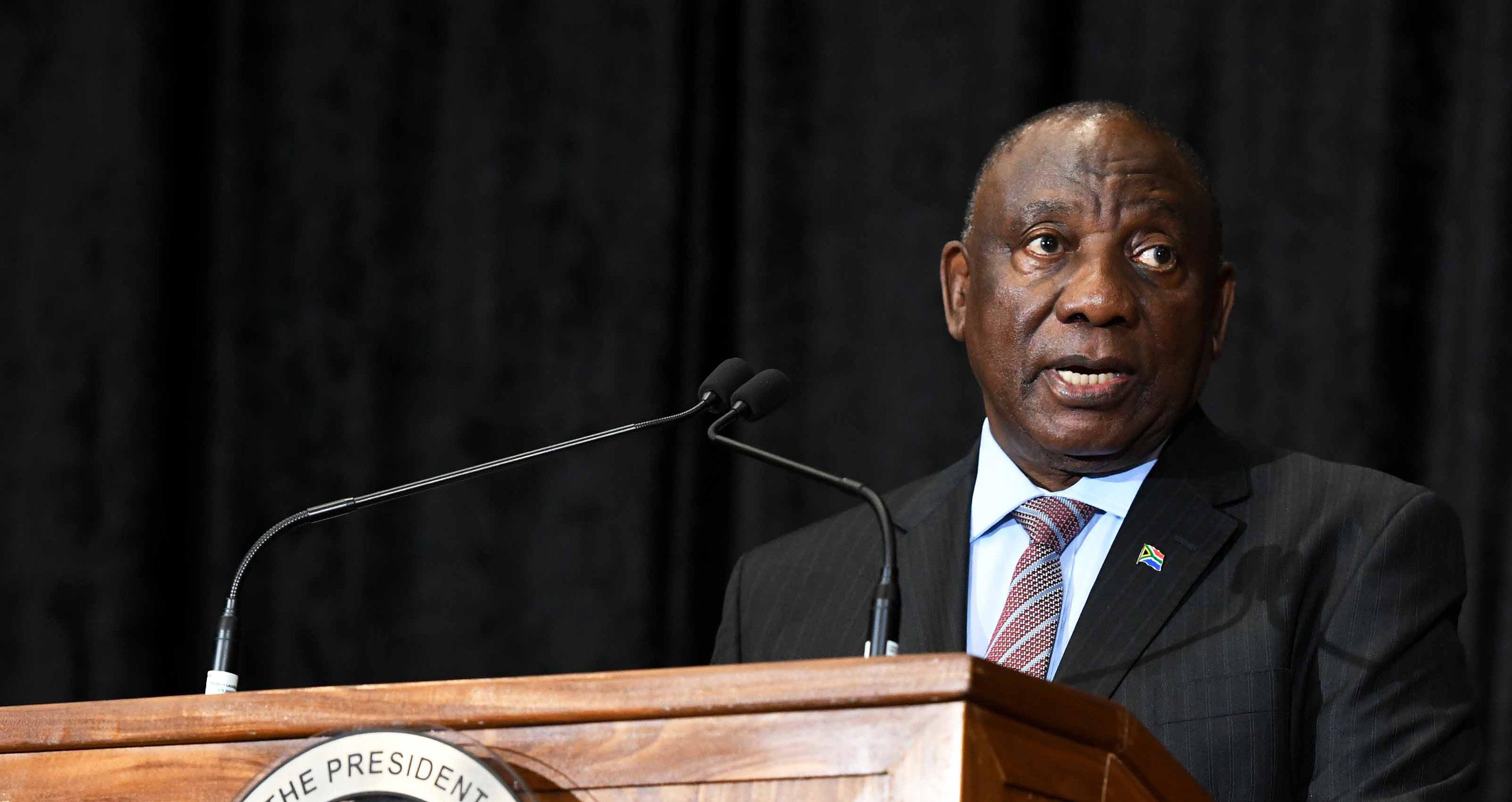
In the report of the Commission of Inquiry into State Capture, Chief Justice Raymond Zondo described corruption in procurement as “the centrepiece of state capture”. He consequently made a number of recommendations on how to prevent corruption in the procurement of goods and services by government.
A few days ago, as part of the extensive work we are undertaking to prevent corruption and consign state capture to the past, I signed into law the Public Procurement Act.
This law eliminates the problem identified by Chief Justice Zondo of fragmentation in procurement laws by creating a cohesive regulatory framework.
Among other things, the law establishes a Public Procurement Office in the National Treasury, which must put in place measures to ensure the integrity of the procurement process. All the members of this office must perform their functions impartially and without fear, favour or prejudice.
The Public Procurement Office must promote standardisation in procurement and modernise the system through technology and innovation. The law focuses on the people who are involved in procurement, requiring them to comply with a code of conduct and receive professional development and training.
No government official may be directed, either verbally or in writing, to violate the required procurement pro -
cesses. And no official can be victimised or suffer ‘occupational detriment’ for reporting any unlawful instruction. This is an important provision because many of the abuses that took place during the state capture era involved political office bearers, businesspeople and others putting pressure on managers to flout procurement regulations.
The law specifically prohibits any person from interfering with or trying to influence any procurement or trying to tam-
per with any tender bid after its submission or award. Suppliers who are found to abuse the procurement system or otherwise commit fraud and corruption are prevented through a ‘debarment order’ from participating in any procurement processes for a specified period.
Certain categories of people are automatically excluded from submitting bids to the State. These include public office bearers, public servants in any sphere of government, officials in Parliament and provincial legislatures, special advisers and employees of public entities. In other words, people who work for the State may not do business with the State.
The Act will also make the procurement system far more transparent. It provides for the use of technology to disclose
procurement information, including awards of bids, the process followed and suppliers awarded. This follows our decision in 2020 to make information on all COVID-19-related contracts available online. No longer will tenders be awarded in dark corners far from public scrutiny.
Public procurement is about getting the best value for the State. It is also an opportunity to promote transformation of the economy and society. The new law, therefore, provides for set-asides in the allocation of contracts to advance companies owned by people historically disadvantaged by unfair discrimination. These include black South Africans, women, youth, persons with disabilities and military veterans.
The approach in the Act is in line with the constitutional requirement that public pro -
curement must be done in accordance with a system which is fair, equitable, transparent, competitive and cost-effective. The Constitution also says that this should not prevent procurement policies that provide for the protection or advancement of people disadvantaged by unfair discrimination.
The Act will enable and encourage the procurement of goods that are produced and services that are provided in South Africa. It will enable government and public entities to use procurement more strategically and effectively to promote the growth of local industry and to create jobs to meet the needs of the State.
As we intensify our collective efforts to build an inclusive economy that creates jobs, the
Public Procurement Act allows us to make best use of public funds to support transformation and local development. At the same time, by implementing measures to prevent the abuse of public procurement, the Act will help to ensure that public funds are put to the uses for which they are intended.
The report of the State Capture Commission shone a bright light on the weaknesses in our public procurement system. We are now fixing the problems the Commission identified and are making public procurement a more effective instrument for social and economic change. ❖
*This President’s message was first published on 29 July 2024.

Praises from around the world are rolling in for Dr Naledi Pandor as she steps down from her government position after serving as a Member of Parliament (MP) since 1994.
Pandor is one of the Ministers who did not return to Parliament to serve in the Seventh Administration.
In February 2024, the former Minister alluded to her retirement during an African National Congress (ANC) event in Cape Town. She stated that she would “in any case not hold public office”. President Cyril Ramaphosa recently announced his Government of National Unity Cabinet, appointing Minister Ronald Lamola to replace Pandor. Since then, warm wishes and tributes commemorating Pandor’s work continue to pour in. Department of International Relations and Cooperation Director-General Zane Dangor described Pandor as one of the most principled and dynamic Ministers he has ever worked
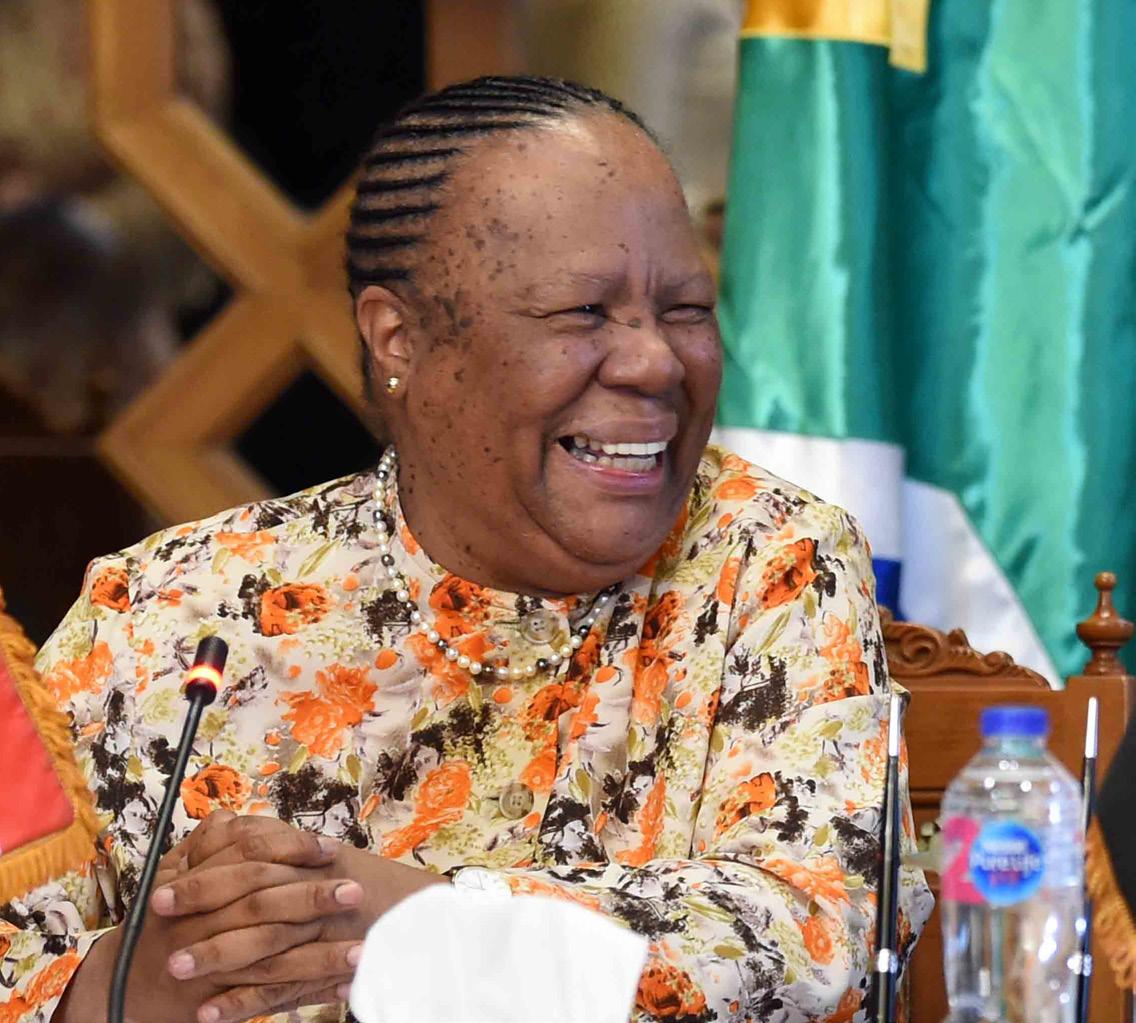
with and someone with an “unrivalled” intellect.
Pandor, a former teacher and lecturer, has numerous qualifications under her belt.
In interviews, Pandor credits her love for books and education to her anti-apartheid activist parents, Joe and Fikile Matthews, during the years they spent with her in exile.
Born in Durban, KwaZulu-Natal, she grew up in exile. She completed her education in Botswana
and London in the United Kingdom, achieving a professional qualification in teaching and a Master’s Degree in Education.
She holds a PhD from the University of Pretoria, a Master’s in General Linguistics from the University of Stellenbosch and a Diploma in Leadership and Development from the Kennedy School of Government, Harvard University.
She received honorary doctorates from Cape Peninsula Uni-
versity of Technology, University of Stellenbosch, University of Lisbon and University College Dublin.
According to Dangor, Pandor made her mark in all areas she worked in.
“In the last five years, she emerged as one of the world’s leading and valued diplomats,” he added.
The former Minister’s daughter, Dr Aisha Pandor, took to X, formerly known as Twitter, to also honour her mother. She shared that her mother has been a member of the ANC and an activist for as long as she can remember.
“I share a birthday with the ANC, and for most of my life, I proudly spent January 8th with other family [members] or friends, while my parents served the party," she said.After being elected as an MP in 1994, Pandor quickly rose to the position of Deputy Chief Whip of the ANC
caucus in 1995. Subsequently, she was elected Deputy Chairperson of the National Council of Provinces in 1998 and then became chairperson in 1999.
“Since I was almost nine years old, she has served as a member of South Africa’s democratic government. During those three decades, she has led with dedication, integrity, intelligence, wisdom, a love for her country and a focus on principles, those held high by her religion, upbringing, country and party,” Pandor’s daughter said.
Aisha mentioned that she admired her mother and was excited about the next phase of her life.
“Yesterday, I told her countless times how much I love her; how much she inspires me, and how proud I am of her. I am also hoping that as by far the most hardworking person I have ever met, she finally takes a bit of well-deserved time for rest.”
Pandor is celebrated for her fearless advocacy for South Africa’s stance on Gaza. She has persistently called for increased action against Israel’s invasion of Palestine.
Under her leadership, the International Court of Justice ordered Israel to take measures to prevent acts of genocide in Gaza,

as well as to provide more assistance to Palestinian civilians. This comes as Israel continues to engage in a conflict with Hamas militants.
During her time as Minister of Science and Technology, Pandor and her team successfully secured a competitive bid in 2012 to host part of the future Square Kilometre Array telescope in South Africa. She has also served as Minister of Home Affairs, and Minister of Education.
In 2022, she received a Lifetime Achievement award at the Standard Bank Top Women
“In the last five years, she emerged as one of the world’s leading and valued diplomats”
Awards for the role she played in government. Former Minister and World Bank Group Executive Director, Ayanda Dlodlo, stated that Pandor’s integrity was unparalleled and that her work ethic was exceptional, demonstrating servant leadership.
“What a woman. What a leader Hope the next chapter of her life is even more fulfilling with more time with her family and many moments of love and laughter.”
The German Ambassador to South Africa, Andreas Peschke, also expressed his thoughts on the matter.
“We would like to thank Dr
Naledi Pandor, outgoing Minister of International Relations and Cooperation, for her tireless diplomatic work. For Germany, it was a privilege to work with you. Re a leboga mme [Thank you, Mother],” the Ambassador said.
Founder of the Kenya Climate Directory, Reuben Wambui, also thanked Pandor for a job well done.
“Naledi is the true embodiment of diplomatic genius, and we will really miss seeing her conduct international affairs on the world stage. Thank you Naledi for your excellent service”. ❖


As the country enters the Government of National Unity (GNU), the National School of Government (NSG) recently hosted a webinar that provided a platform to discuss the likely impact of the GNU on the public administration and governance system – with lessons from countries abroad that have gone through power sharing arrangements, as well as in the country’s local government system where coalitions have also been in existence for a few years.
The webinar was held under the topic: “Making Coalitions and Governments of National
Unity Work: The Role of Professional Bureaucracies.”
Speaking at the webinar, Chairperson of the Public Service Commission, Professor Somadoda Fikeni, noted that while it will take some time to get used to the idea of a coalition government, they are here to stay.
“It is not a passing phase but something we must be prepared for and navigate,” he said.
Fikeni highlighted a need for spending enough time reflecting on the political psychology of the Public Service and coalition
politics, including rational choices and what informs them in the process of their interface.
He said coalition governments need to invest more on political psychology, because “it is not just a legislation, but a behavioral pattern, a perception and misperception, trust and mistrust.
“It is in this realm that I think that even training institutions [including] academic institutions [should] invest more into [the] space of soft skills; how to deal with diversity; how to anticipate conflict situations, [and] how to deal with trust and [the] building of trust.
“Those are in the psychological realm. They are not sometimes written in any particular space, and that in itself I think, is the space even social scientists and law studying departments in the public sector do not spend much time dealing [with] in those particular areas,” he explained.
In a toxic environment or in spaces of certain kinds of personalities, Fikeni said: “If you have a strong personality Minister and strong personality DG (Director-General), and all of them are there to prove a point, you are almost certain that you would have a clash down the line [and] that profiling of behavioural patterns becomes very much important, not only for the DG, but for the DDGs (Deputy DirectorGenerals), Chief Directors and so forth.”
Fikeni also reiterated the sentiments that chief advisors of different plans from different political parties need to be given support and access to centres of excellence.
“There might be a need to target those people in the private offices, like Chiefs of Staff, advisors and so forth, for a training [so that] they are also taken into the same space for this professionalism and professionalisation, and go beyond just looking at the principals of a political party they are bringing; something larger in terms of the agenda and the priorities of the Seventh Admin-
istration – but also the national interest," Fikeni said.
Sharing his experience on coalition governments, former Advisor to Coalition Governments in Ireland, Fergus Finlay, said trust and relationships are an important ingredient towards the success of coalition governments.
“The key thing about coalitions is relationships, acceptance that you not going to get everything you want in a coalition, [and] acceptance that even if you do not get everything you want, you are going to respect the bottom line,” Finlay said.
Former Chief of Cabinet for various Belgian Ministers, including the Vice Prime Minister from the Belgium government, which is known for coalition governments, Jan Cornillie noted that the longest coalition negotiation in Belgium took 514 days.
Cornillie underscored the importance of discussing coalitions before entering into government and the need to make compromises and institutionalise it because ‘pacification is in itself a key to coalition outcome.’
“Limit the zone of possible agreements by introducing facts and constraints into the discussions (what is implementable), provide an overarching narrative in which governing parties can find themselves; make use of the
nation’s centre(s) of excellence in policymaking, and provide access to chief advisors from all governing parties,” Cornillie said.
Cornillie also emphasised that government is not completed by Ministers and Cabinet alone, but need a whole system, including advisors, the civil service, national expert bodies and political advisors that trust each other.
Professor of Political Science at the University of Florence and Coordinator of Department of Public Policy and Governance, National School of Administration in Italy, Professor Andrea Lippi, acknowledged that coalition governments are difficult.
Lippi said through coalition governments, Italy has seen transformation of the Cabinet with more relevant, not only legal supervision, but brokering and with more employees; and creeping professionalisation of civil servants towards a strategic role of policy making.
He said Italy also experienced the relevant role of informal relationships, networking, governance among ministries, and multilevel governance with 20 regions and 7 000 more municipalities, as well as new relationships between representative bodies and bureaucrats and related new problems, including accountability, delegation of responsibilities and bargaining.
“We have observed the increasing relevance of soft power in place of (or beside) hard power; new stream of skills for a policy of training in favour of top civil servants; increasing the role of evidence-based policy making [including] policy evaluation, policy advice, open government and participatory procedures, and multi-level governance [amongst others]”.
Lesotho Institute of Public Administration and Management Administration DG Nthabiseng Tlhomola argued that the role of professional public officers is to serve the government of the day and, as such, should be apolitical.
For the first time since 1966, the Lesotho general elections in 2012 produced a hung government, where no single political party could form government, and political parties were forced to engage in talks to join forces.
On the rise of the GNU in Lesotho, Tlhomola said in general, the manifestos of the country’s political parties were similar; looking into infrastructure development, job creation and growing the economy.
“We are now more than 10 years [into] a coalition government; we, therefore, have a story to tell,” Tlhomola said. ❖
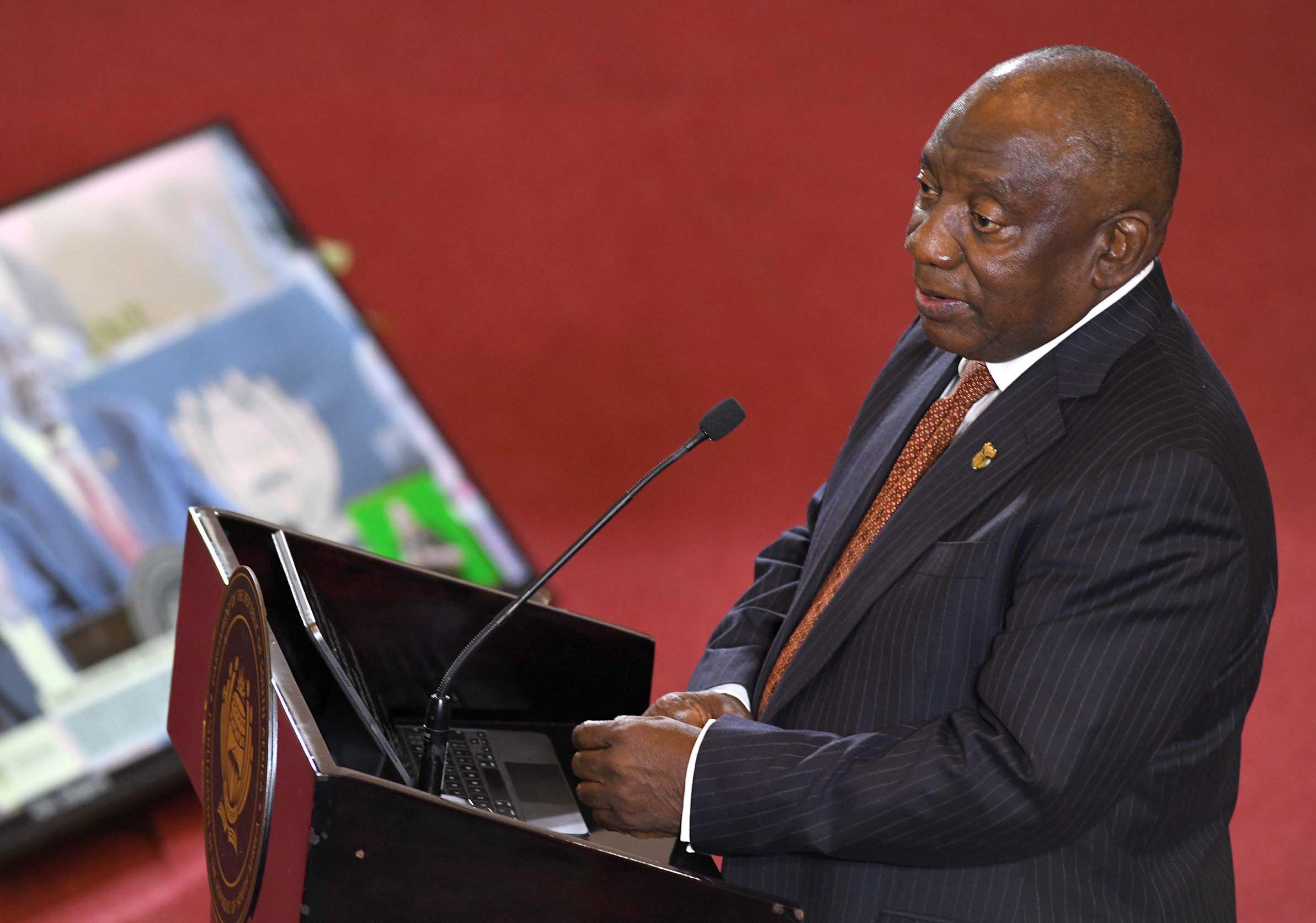
The Government of National Unity (GNU) has committed to proceeding with the work already underway to professionalise the Public Service, as well as ensure that government attracts people with skills, capabilities and integrity.
The National Framework towards Professionalisation of the Public Sector was approved by Cabinet in October 2022 and is being implemented.
Delivering the Opening of Parliament Address in Cape Town, President Cyril Ramaphosa said one of the strategic priorities of the GNU was to build a capable, ethical and developmental state.
“We will complete the implementation of a new centralised ownership model for SOEs. This will improve accountability, transparency, governance and oversight, while reducing inefficiency and the potential for corruption,” the President said.
He said the establishment of a state-owned SOE holding company will give South Africa greater capacity to build a sovereign wealth fund.
“We will continue to fight corruption and prevent undue political interference in the administration of the State. In this administration, we will complete the work to restore the financial position and operational performance of our stateowned enterprises (SOEs).
“This has been done successfully by other countries whose sovereign wealth funds have built up capital from the high performance of the stateowned enterprises rather than from the fiscus”.
President Ramaphosa said in order to tackle crime and corruption, the country must have capable, sophisticated and independent law enforcement agencies that can fight complex and organised crime.
“We will deploy modern technology to assist crime fighting. A data-driven approach will be used to identify violent crime hotspots and inform the allocation of policing resources
alongside prevention measures,” the President said.
Government will also continue to tackle priority crimes like illegal mining, gang violence, cash-in-transit heists and the construction mafia through specialised police units.
“We will continue to implement the National Strategic Plan on Gender-Based Violence and Femicide, and expand victim support services, like the Thuthuzela Centres and GBV desks in police stations,” he said.
Work in the Seventh Administration will also prioritise driving inclusive growth and job crea tion as well as reducing poverty and tackling the high cost of living. ❖
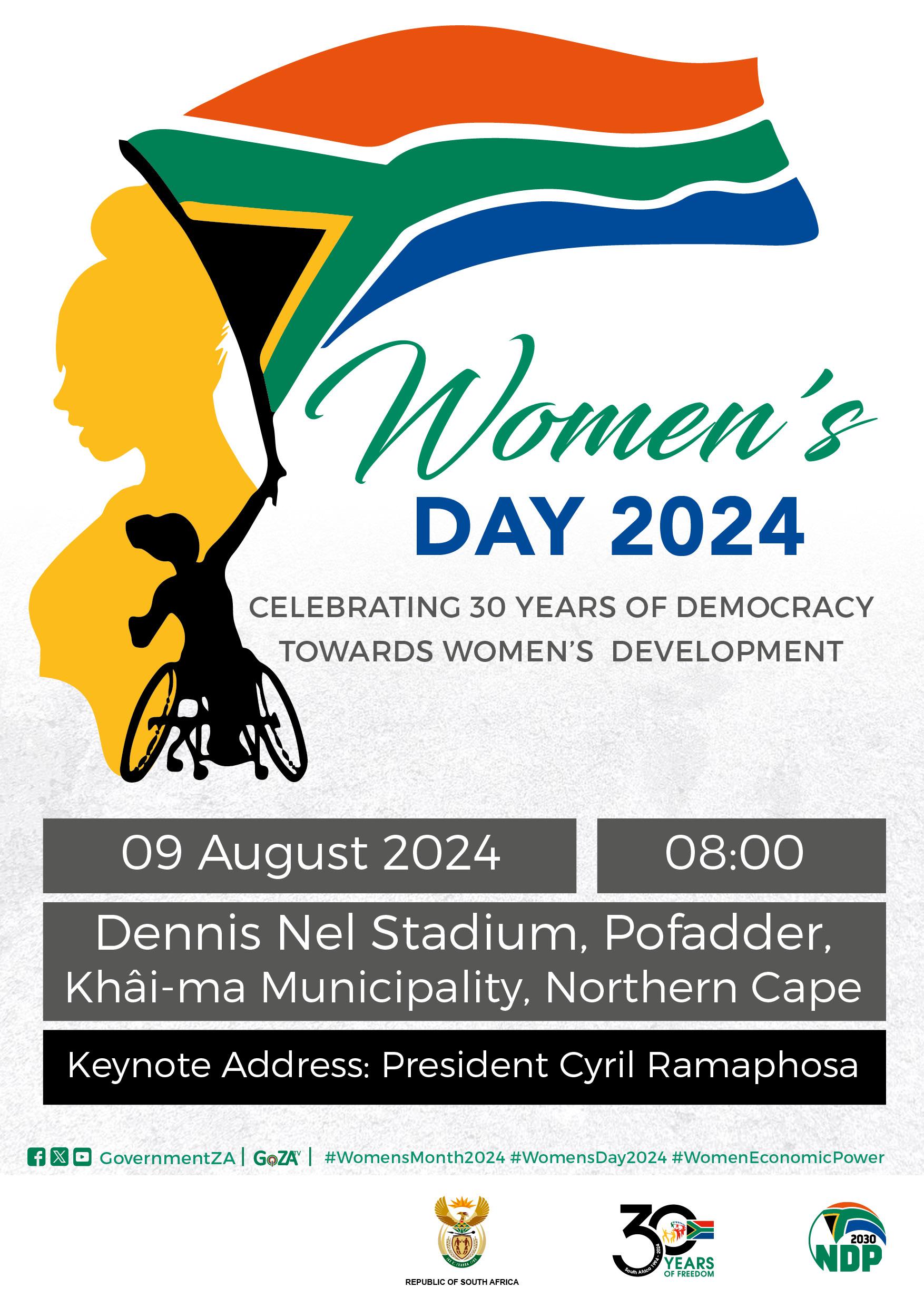
Source: Ashraf Patel, Digital Economy and Society Researcher, Institute for Global Dialogue
Artificial Intelligence (AI) has, alongside climate change and peace, emerged as one of the core global grand challenges of 2024. The United Nations (UN) Secretary-General, the International Monitory Fund ( IMF) Director and the Holy See Pope Francis have weighed in on the grand challenges – and dangers of AI in society.
Speaking at the World Economic Forum (WEF) in midJanuary, UN Secretary-General
António Guterres warned of the “existential threats” posed by the reckless use of AI by tech companies in pursuit of profits. He went on further to decry the current big data profiteering model. “Powerful tech companies are already pursuing profits with a reckless disregard for human rights, personal privacy and social impact. Meanwhile, every new iteration of Generative AI increases the risk of serious unintended consequences. This technology has enormous potential for sustainable development
– but the IMF has just warned that it is very likely to worsen inequality,” said.
A day later, IMF Managing Director Kristalina Georgieva also made a public statement on the dangers of AI, its job impacts and rising inequalities. Citing IMF's recent study on AI and its impact, “the findings are striking: almost 40% of global employment is exposed to AI. Historically, automation and information technology have tended to affect routine tasks, but one of the things that sets AI apart is
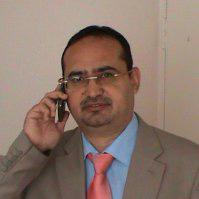

its ability to impact high-skilled jobs. As a result, advanced economies face greater risks from AI – but also more opportunities to leverage its benefits –compared with emerging market and developing economies. It is generally unusual for IMF directors to stray beyond monetary policy, but this statement underscores the current glaring inequalities that AI and the Fourth Industrial Revolution (4IR) are having on the social agenda – and the current transitions leading to large scale unemployment in the short term.
When Klause Schwab of the WEF introduced the concept of the 4IR, it was filled with promise of new cyber-industrial age with distributed benefits. However, the profit maximisation model

and intensification of automation in manufacturing and AI, algorithm bias and big data’s ad tech model has opened up a pandora’s box.
The dark underbelly includes disinformation, digital sweetshops, and social media’s impact on emotional health and political extremism. The rise of Chat GPT, Open AI and Generative AI in 2023 has created unprecedented disruptions in most industries, Hence a new AI model of policy and regulation is urgently needed.
The setting up of the UN's AI council is timely as AI and Generative AI (Chat GPT etc) are penetrating all sectors, disrupting sectors with potentially negative impact on public goods such as education, health care and the Fourth Estate – news media.
economic power. Tech firms are used to innovating first and dealing with the consequences later (‘permissionless innovation’) rather than the culture of precaution, which has been familiar in other innovative sectors such as genetics, nuclear energy and pharmaceuticals or with some environmental impacts”.
AI Grand social challenges that require social and inclusive agenda: 4IR and the world of work and job
on a new social compact and workplace inclusion and skills development.
The WEF’s post-COVID report: the Great Reset further points to a dystopian reality awaiting workers everywhere and especially for Africa.
“In emerging and developing countries (particularly those with a “youth bulge”), technology runs the risk of transforming the “demographic dividend” into a “demographic nightmare” because automation will make it much harder to get on the escalator of economic growth” (Schwab and Malleret, 2020, WEF).
Another goal with AI is also concerned with global safety –with an approach that’s sometimes called ‘responsible innovation’ which aims to maximise the gains and minimise the risks that can (and cannot yet) be foreseen. That goal can be found in the UN Secretary-General’s approach to digital cooperation (and the new advisory board that he set up to consider what it means) as well as other initiatives concerned with AI ethics.
According to the Association for Progressive Communications, “the race to be first – between big tech corporations and the countries where they are based (particularly the Unites States and China) – is well and truly underway, and the prize of winning is considered crucial to future commercial success and national
Leading Massachusetts Institute of Technology economists Erik Brynjolfsson and Andrew McAfee argue that the 4IR “could yield greater inequality, particularly in its potential to disrupt labour markets. As automation substitutes for labour across the entire economy, the net displacement of workers by machines might exacerbate the gap between returns to capital and returns to labour. As automation substitutes for labour across the entire economy, the net displacement of workers by machines might exacerbate the gap between returns to capital and returns to labour. The International Labour Organisation’s (ILO) Global Commission on the Future of Work has produced detailed assessment on the impact of technology on the new world of work, with recommendations
Key global institutions ranging from the WEF to G20 to BRICS and the ILO are now calling for a social market approach, with social protections.
One of the most visible and concerning spaces is the daily divisive discourse of the public sphere as encapsulated by social media. The rise of disinformation and extremism is an existential crisis and danger, and MetaFacebook facing regulatory and congressional scrutiny on the role of AI and algorithms in influencing extremist agendas, the pandora box has been opened with no letting up. The case of Myanmar and other milestone cases that enabled community hate leading to acts of genocide.
Politics is in fact national and ‘lives in the local’, thereby exacerbating dangers within communities. One only needs to recall the role that radio played in promoting ‘hatred of the other’ in the Rwandan Genocide.
The Gig Economy and the new precariat: In recent years, Uberisation has come to describe the conditions of the new precariat – Gig and Uber workers the world over have faced daily dangers and squeeze at the margins in the App economy. In recent years, Berlin and City of London, among other, have formally classified Uber drivers as core workers, with social wages and health benefits. But digital sweatshops are rife in the Global South. They social rating workers in Philippines, the multitudes of research and education Gig workers in Kenya and India that services the higher education market in the North point to knowledge and data extraction. Even in the US, the 2023 Amazon workers’struggles for workplace recognition and the Hollywood writers’ strike have been unprecedent. One of the contentious issues is how AI and Chat GPT appropriates creative labour and squeezes them out of the value chain. As shareholders and large media houses extract ever more value from Copyright and intellectual property, it is the ‘real workers
who create real wealth’ that are at the margins of the value chain. News media faces downsizing and closure as the ad-tech model eats up their revenues, thus eroding the vital Fourth Estate.
Digital divide in the Global South: Finally, although much progress has been made in update of the Internet, primarily via mobile networks and smartphones, the Global South faces many uneven challenges. At least two billion persons in the Developing South do not have access to affordable and quality communications.
The International Telecommunication Union’s (ITU) 2023 Digital Divide unpacks statistics and explains that the volume of Internet traffic across fixedbroadband networks, which remain common in office and home settings, far exceeds that of mobile-broadband networks. However, the dominance of fixed networks underscores the global connectivity disparity between high- and low-income countries, with only one fixedbroadband subscription per 100 people in low-income countries due to high prices and a lack of infrastructure, and high-cost structures
“The further and faster technology advances, the more urgent our mission to connect everyone becomes,” said Doreen BogdanMartin, ITU Secretary-General.

“Fulfilling the promise of universal and meaningful connectivity is one of the most important causes of our time in our effort to realise the sustainable future we want and need,” noted the ITU report.
It is for these and many other socio-economic reasons that a new social compact on AI for society is required. The UN Secretary-General’s AI Council and United Nations Educational, Scientific and Cultural Organization’s Tech Platform are important foundational frameworks and only starting points that need public attention and education in line with UN’s founding values; and that require critical conversations and public policy debate.
Other global formations such as the G20 have a role to play, particularly on the need for multinationals and big tech to pay the base 15% global tax rate. The new BRICS nations Partnership on 4IR also offers an inclusive model on digital industrialisation. The African Unions Digital Trans-
formation 2030 Report is rooted in meeting an inclusive digital society with goals for information and communication technology infrastructure, access, services and affordability, but needs to be upgraded to include AI and digital content for development, as well as deal with range of privacy issues.
More importantly, national governments, parliaments and city-states need to be proactiveworking in concert with stakeholders – unions, educators, academics, civil society and entrepreneurs to craft relevant and contextual AI policy frameworks in order to avoid the current Orwellian and dystopian model, where the collective wealth of the top five tech billionaires exceeds US$500 Billion in the context of massive layoffs.
More equitable, and inclusive development pathways, in line with the original UN Charter and the current UN Sustainable Development Goals has become an existential priority. Time is running out. ❖

South Africa's journey towards gender equality in leadership, particularly within the Public Service, has been marked by significant milestones and persistent challenges. Post-apartheid South Africa inherited a deeply entrenched system of patriarchy, with women historically marginalised in leadership roles across all sectors. The advent of democracy in 1994, however, brought with it a strong commitment to redressing these inequities.
The South African Government has since implemented several legislative and policy frameworks aimed at promoting gender equality. The Constitution, regarded as one of the most progressive in the world, enshrines the principle of gender equality. As well, government has introduced specific measures such as the Employment Equity Act of 1998, which seeks to
promote equal opportunity and fair treatment in employment through the elimination of unfair discrimination.
One of the most notable advancements is the increased representation of women in Parliament. Following the 2019 general elections, women made up 46% of the National Assembly and 43% of the National Council of Provinces.
This is a significant improvement from the early years of democracy, where women's representation was less than 30%. The Public Service has
also seen a notable increase in female representation in senior management positions, with women occupying approximately 42% of senior management roles in government departments.
Despite these achievements, the public sector still outpaces the private sector in terms of gender representation in leadership roles. According to the 2022 Businesswomen’s Association of South Africa Census, women hold only 23% of directorships
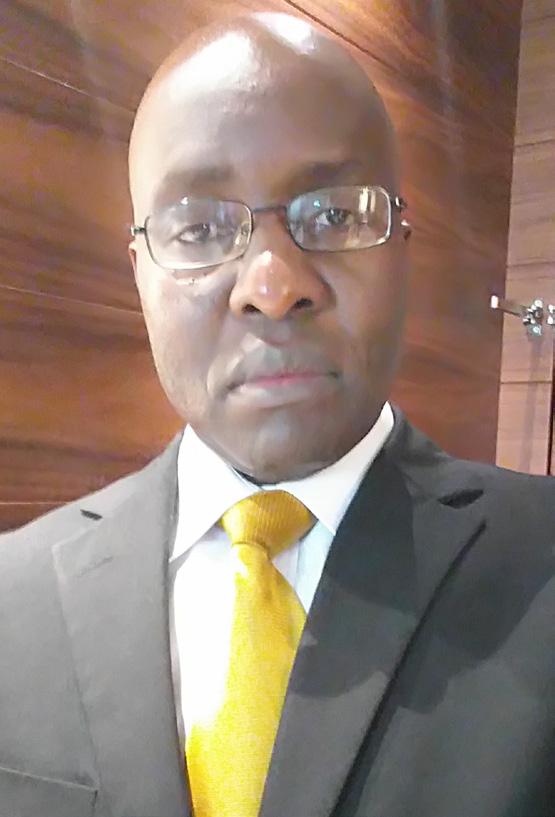
and 32% of executive management positions in the private sector. This disparity can be attributed to several factors, including the more stringent regulatory frameworks in the public sector that mandate gender parity.
The private sector, although showing some progress, remains slower in implementing and enforcing gender equality policies. Initiatives such as the gender mainstreaming awards, aimed at encouraging companies to focus on gender equality, have highlighted both successes and

Photo: Unsplash/Christina

ongoing gaps. Nevertheless, the private sector is beginning to recognise the value of diversity and inclusion, not just from a social justice perspective but also for enhancing business performance.
Government continues to prioritise gender equality through various initiatives and strategic plans. The National Development Plan (NDP) 2030 outlines the country’s vision to eliminate poverty and reduce inequality, with a specific focus on enhancing the representation of women in leadership positions. The NDP emphasises the importance of gender equality in achieving sustainable development and economic growth.
Moreover, the Department of Women, Youth and Persons with Disabilities has developed the Gender Responsive
Planning, Budgeting, Monitoring, Evaluation and Auditing Framework. This framework aims to ensure that government departments incorporate gender considerations into their planning, budgeting and service delivery processes.
Globally, South Africa ranks relatively high in terms of women's representation in leadership roles. The World Economic Forum’s Global Gender Gap Report 2021, places South Africa 18th out of 156 countries in terms of gender parity. This is a commendable achievement, considering the country's historical context and ongoing socio-economic challenges.
In the African context, South Africa is a leader in promoting gender equality in leadership. Rwanda is often cited as a continental and global leader, with women holding over 60% of parliamentary seats. Other African countries like Namibia and Senegal have also made
significant strides. However, many African nations still grapple with deeply rooted cultural and socio-economic barriers that hinder women’s advancement in leadership.
Despite the progress, several challenges remain. One of the significant barriers is the persistence of patriarchal norms and attitudes that undermine women’s leadership capabilities. Gender-based violence and femicide (GBVF), a pervasive vice in South Africa, also impacts women's ability to participate fully in leadership roles.
Additionally, there is a need for more robust implementation and monitoring of gender equality policies. While legislative frameworks are in place, the gap between policy and practice remains a concern. For instance, although women occupy a substantial percentage of senior management positions in the Public Service, their representation in strategic decision-making roles is still limited.
Economic disparities also play a role. Women, particularly black women, are disproportionately affected by poverty and unemployment, limiting their opportunities for ad-
vancement. Addressing these economic inequalities is crucial for fostering a more inclusive and representative leadership landscape.
South Africa has made commendable progress in promoting women in leadership within the Public Service.
The country’s legislative and policy frameworks provide a solid foundation for gender equality, and the increased representation of women in government is a testament to these efforts. However, the journey is far from over. Addressing the persistent challenges of patriarchal norms, GBVF, and economic inequality is essential for achieving true gender parity.
Comparatively, the public sector leads the private sector in gender representation, highlighting the need for more concerted efforts within private enterprises. On a global scale, South Africa is a leader but must continue to strive towards greater inclusivity and representation.
Ultimately, the advancement of women in leadership is not just a matter of equity; it is a critical component of sustainable development and societal progress. In persisting to champion gender equality, South Africa can set a powerful example for the rest of the continent and the world. ❖


Using fashion to celebrate and represent South African women locally and globally is a creative way that the THEBE
Writer: More
Photos:

at THEBE MAGUGU, Siya Ntini about fashion tips for the ladies.
THEBE MAGUGU is a luxury South African fashion brand that offers readyto-wear collections while exploring parallel concepts through multidisciplinary capsule projects.
MAGUGU brand embodies.
As part of celebrating Women's Month, Public Sector Manager magazine spoke to Design Assistant
The brand honours various South African cultures and heritage through novelty and uncompromising quality designs that are timeless. The designs represent women and men through




garments that embrace and enhance their everyday experiences.
The brand is known across the globe and competes with many international luxury brands.
“When trying to style your favourite dress that you have worn to death, adding a belt can take it a few notches into the realm of understated luxury,” said Ntini.
The belt can be matching, complimentary or contrast.
“Another way is to find a serious but fun dress that breaks all the rules. A roomy shirt dress with a vibrant print is a great way to break from the norm but remain comfortable,” he added.
Ntini said wearing clean formal jeans to work is a fantastic way to add textural or styling interest.
“Worn with a matching or con-
trasting minimalistic belt with chunky hardware, ‘office’ pants will never be boring,” he said.
He added that another approach could be introducing pants with a slit or a vibrant but understated print or pattern.
“This is a fabulous way to upgrade your aesthetic,” Ntini said.
A suit is the most powerful way to make a statement. Ntini advises ladies to go for a vibrant colour pattern on a classic cut for the most fabulous office style.
“A powerful woman should own a couple of powerful suits or jackets. When it comes to coats, a statement can be expressed through texture or pattern. Make sure to pair it with its matching belt for maximum appeal,” he explained.
He said knitwear should be every woman’s weapon because of its power to highlight curves.
“Knitwear can be vibrant and simplistic in cut. To keep warm but in a stylish way, use knitwear for layering during colder days in fun ways,” he explained.
With shoes, he recommends keeping it simple but interesting.
“The worst thing you could do is to start your day wearing uncomfortable shoes. Go for a pop of colour for a muted look, or a classic neutral colour for overpowering looks. Hardware on a classic shoe is a great way to add flare to your closet,” said Ntini.
Classics in this category maintain their importance. Ntini said high quality leather in muted colours are a fantastic way to add reliable pieces in your closet.
“Hardware is where your accessories shine. Go simplistic or go over the top. If your style is more on the eclectic side, a statement belt such as a peplum or dunga-
ree belt is a fantastic way to add dimension to your look,” he said.
Ntini reckons that understated luxury is optimum in this category. Wispy earrings and necklaces are a fashionable way to add dimension to your look.
“When shopping for jewellery, it is important to shop according to your undertone. You could have the most stunning, expensive piece of jewellery but if it makes your skin look dull, it will never look as good as it should,” he explained. ❖

For further styling cues, visit www.thebemagugu.com or follow MAGUGU HOUSE on Instagram @thebemagugu. You can also visit their shop at 5 Bompass Rd, Dunkeld West, Johannesburg.
Writer: More Matshediso
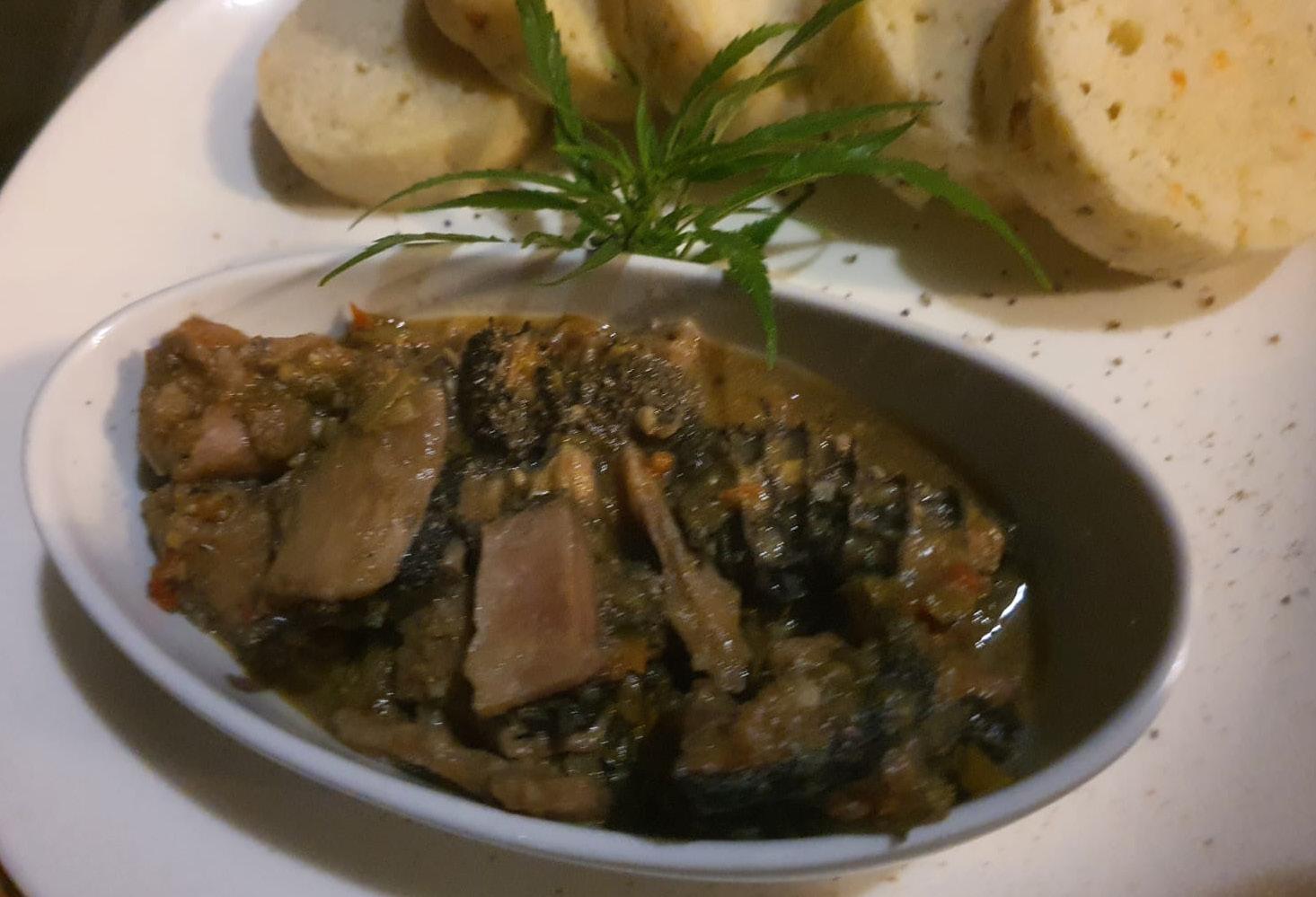
Cow intestines and tripe, famously known as mala-mogodu in Sotho languages, is one of South Africa’s traditional foods loved by many, and can be eaten at any time of the year.
In this edition, the Gautengbased Chef Phill Khoza shares a recipe for mala-mogodu and dumpling.
Khoza is the Chief Executive Officer and founder of The
Unorthodox Chef Catering, a company that offers household and events catering, as well as cooking classes. The company offers traditional meals to its clients.
“We have a range of authentically African cooked and frozen traditional meals available at Pick n Pay. We are in 84 stores around Gauteng,” he said.
Khoza recommends malamogodu because it is rich in
high-quality protein, which is essential for muscle growth and repair. It is also rich in iron that is vital for transporting oxygen in the body and zinc for immune function.
Tripe contains collagen, which supports joint health and skin elasticity. It also contains B vitamins such as B12 and riboflavin, which are important for energy production and red blood cell function.
“Traditional African cuisine often emphasises using all parts of the animal, including offal like intestines and tripe, which are not only flavourful but also nutrient-dense,” he explained.
• 500g cow intestines, cleaned and cut into pieces.
• 500g cow tripe, cleaned and cut into pieces.
• 1 onion finely chopped.
• 2 tomatoes, chopped.
• 2 garlic cloves, minced.
• 1 green bell pepper, chopped.
• 2 tablespoons tomato paste.
• 1 teaspoon paprika.
• 1 teaspoon ground cumin.
• 1 teaspoon ground coriander.
• Salt and pepper to taste.
• Water.
• Cooking oil.
• Fresh parsley or coriander for garnish.
• Thoroughly rinse the cow intestines and tripe under cold water to remove any dirt or residue. Cut them into bitesized pieces if not already done.
• In a large pot, bring water to a boil. Add the cow intestines and tripe pieces. Boil them for about 10 to 15 minutes. This step helps to further clean and prepare the offal.
• Drain the boiled intestines and tripe and set them aside. In the same pot or a clean pot, heat some cooking oil over medium heat. Add the chopped onion and fry until translucent.
• Add the minced garlic, chopped tomatoes, and green bell pepper to the pot. Cook for a few minutes until the vegetables soften.
• Stir in the tomato paste, paprika, ground cumin, ground


coriander, salt, and pepper. Mix well to combine the spices.
• Return the boiled cow intestines and tripe pieces to the pot. Add enough water to cover the ingredients. Bring to a boil, then reduce the heat to low. Cover and simmer gently for about two to three hours, or until the intestines and tripe are tender and cooked through. Stir occasionally and add more water if needed to prevent sticking.
• Once the intestines and tripe are tender, adjust seasoning if necessary. Serve the stew hot, garnished with fresh parsley or coriander.
Ingredients:
• 4 cups of cake flour.
• 1 packet of instant yeast (10g).
• 2 tablespoons sugar.
• 1 teaspoon salt.
• 2 cups of warm water.
Method:
• In a large bowl, mix the flour, yeast, sugar and salt.


• Gradually add warm water, mixing to form a soft dough.
• Knead the dough until smooth and elastic.
• Cover and allow to rise in a warm place until doubled in size.
• Grease a metal or enamel bowl and place the dough inside.
• Cover the bowl with aluminum foil and steam in a large pot with boiling water for about one-and-half to two hours.
• Check for readiness by inserting a skewer; it should come out clean.
• Let it cool slightly before serving.
“Enjoy this dish as part of a balanced diet to experience authentic African flavours and reap the health benefits of these ingredients,” said Khoza. ❖
Khoza is an accomplished chef with a diverse background in culinary arts, shaped through vocational colleges and extensive on-the-job training. With a career spanning several prestigious hotel groups, including Primi Piatti in Cape Town, Amakhala Game Reserve, Pestana Hotels Africa, Sun International, Legacy Hotels and The Unorthodox Chef Catering, he has honed his skills in various culinary environments.
Khoza's dedication and talent have led him to cater for numerous international celebrities and attend notable events.
In 2009 and 2010, he served as the Chef designate for teams at the Confederations Cup and World Cup, respectively. His expertise was further showcased at the Australian Bachelor Finale in 2016 at Kwa Maritane Bush Lodge. Additionally, Khoza was the chef designate for the movie "Blended."

Beyond his practical achievements, Khoza is a dedicated educator, serving as a lecturer, facilitator, and moderator at Capsicum Culinary School. His roles also include product design, where he continues to innovate and inspire the next generation of chefs.
*For more information, email: info@theunorthodoxchef.co.za or call 078 126 975 15. You can also visit www.theunorthodoxchefcatering.co.za
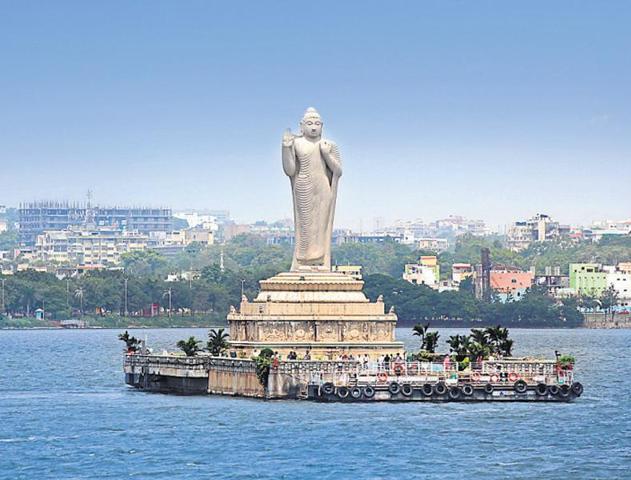
The Hussain Sagar Lake in Hyderabad is one of the popular recreational and tourist spots in India, with the statue of standing Buddha in its centre. It is one of the largest man-made lakes situated just two
kilometres away from the heart of the city of Hyderabad.
Earlier this year, I had an opportunity to cruise through the 462 years old lake on a boat and visited the statue of Buddha at its centre. The lake connects the
cities of Hyderabad and Secunderabad.
I personally enjoyed boating at the lake with fellow South Africans and Indian locals who could not help but gaze at African beauty that we represented, something that I found both admirable and weird because I did not understand that it is not every day that some of the Indian people see an African up close and personal.
The Hussain Sagar Lake attracts visitors of all age groups. While on the boat, I sat next to a family that could not help but stare at my skin tone and natural African hair.
The wife and husband started the conversation about where I was from, while their children just gazed at me with wide smiles on their faces, and before I knew it,
they leaned on to take pictures with me, which I was okay with because they were friendly.
I realised then that the lake was visited by every Hyderabadi for a family picnic or outing with friends or their partners, as well as global citizens from far-flung corners of the world like my group and I, who traveled all the way from South Africa to learn part of fascinating Indian history and religions.
There are various options of boating at Hussain Sagar Lake,including speed boats and motorboats.
According to the Government of Telengana website, another major attraction of the lake is the 48-seater launch, which also offer its guests dinner and is available for hire for private parties if required.
“One can also do parasailing at Hussain Sagar Lake or water skiing, although the timings and availability of these activities do vary from time to time. Cruising at the lake makes the visit all the more enjoyable,” stated the website

Photo: More Matshediso

The government of Telengana said the statue of Buddha at the centre of the lake is 16 metres tall and weighs almost 350 tons.
“The statue is made up of white granite. The lighting shone at the statue is something to behold. Along with this, there are almost 30 statues of various famous deities around the lake as well,” it explained. It added that the lake was excavated during the reign of Ibrahim Quli Qutub Shah. Built on the tributary of River Musi, it has been named after Hussain Shah Wali. Hussain Sagar Lake was initially built to cater to the irrigation needs and other water needs of the city.
“Until the year of 1930, it was used for the same purpose. Having been bordered by Indira Park in the east, Sanjeevaiah Park in the north and Lumbini Park in the south, the lake pre -
sents a setting quite rare to find in the middle of any city in India.
“There is also a bund on its banks, which was built to control the flow of water. This artificial lake now beautifies the city gracefully. Not just for beauty, it is also known for its historical connection. On the banks of this Hussain Sagar Lake the treaty between Mughals and Golconda was signed,” the website said.
Hussain Sagar Lake also enjoys a good location, making it easily accessible from the rest of the city and well connected by local trains as well as buses, taxis and other modes of transport.
The lake is open from 08:00 to 22:00, seven days a week. Even a simple long drive on the roads by the side of lake is also quite refreshing. ❖
For more information, visit https://hyderabad.telangana.gov.in and www.tourism.telangana.gov.in
*There are currently no direct flights between South Africa and India. South Africans are eligible to a free tourism visa to India. Check with your local travel agent for costs.
